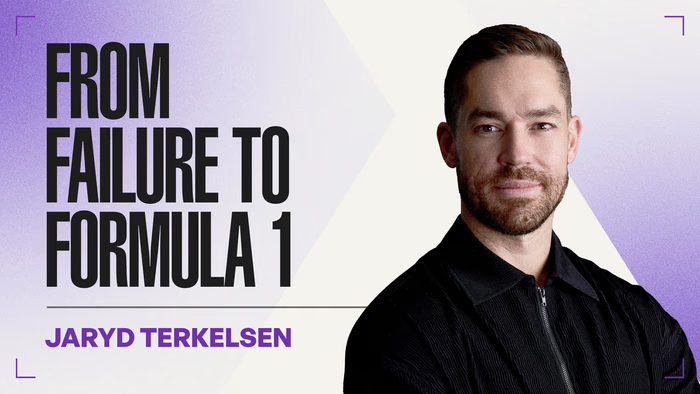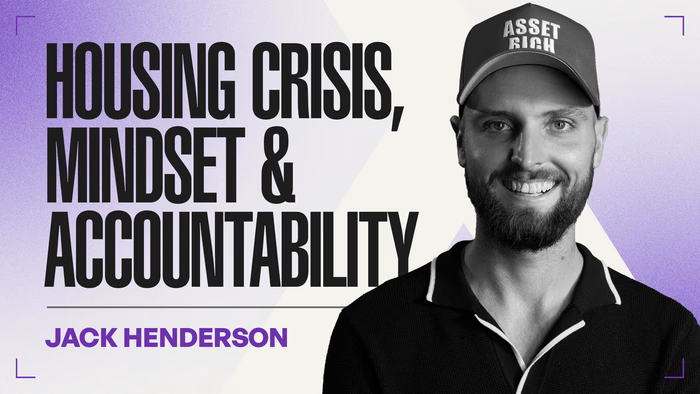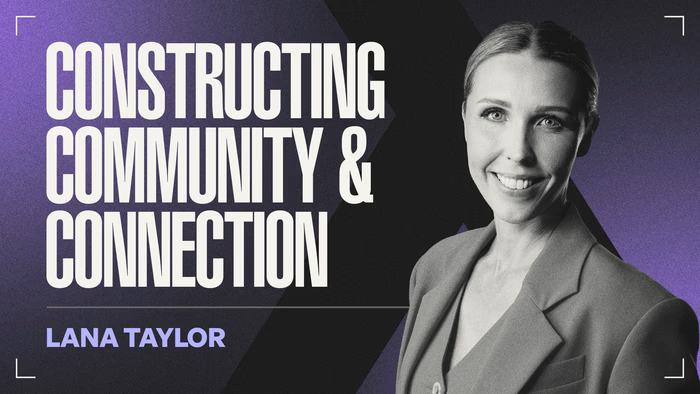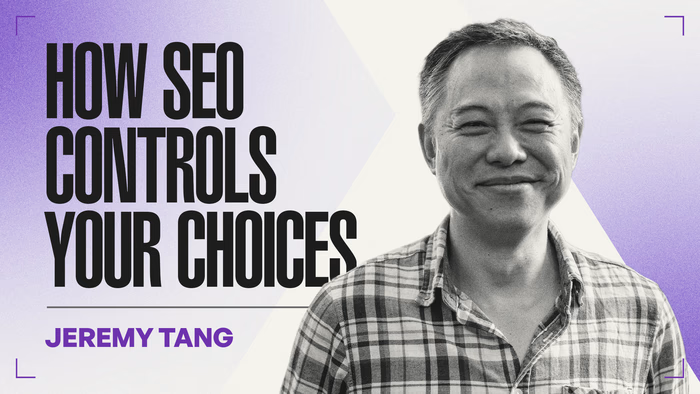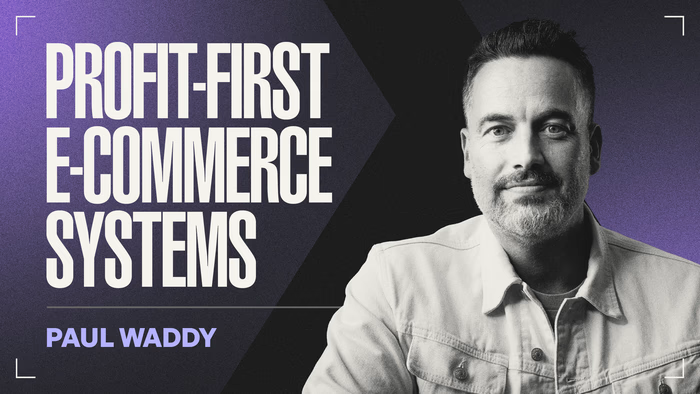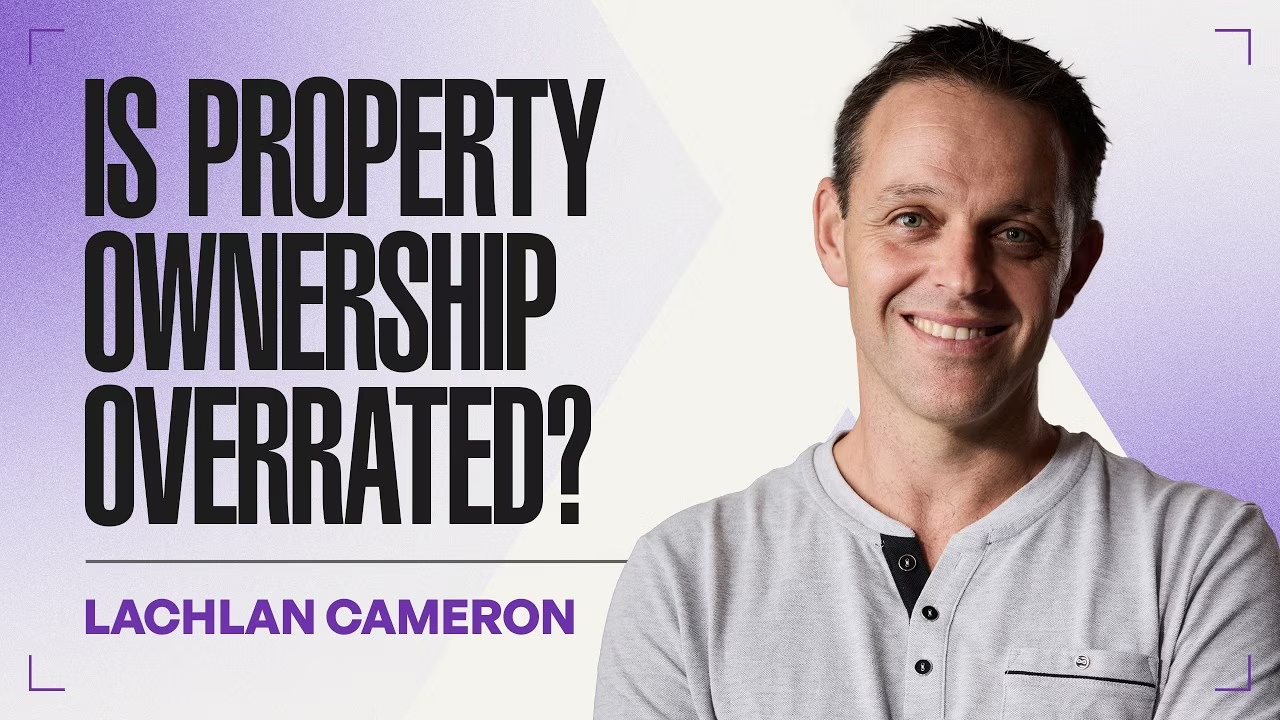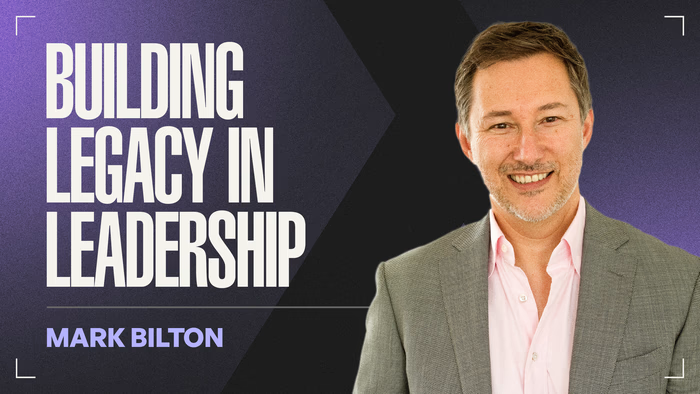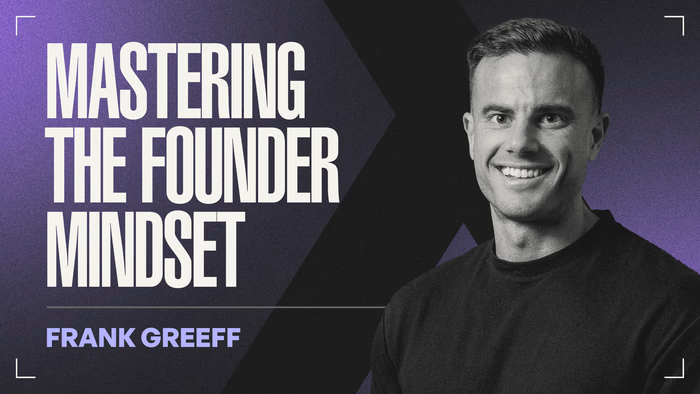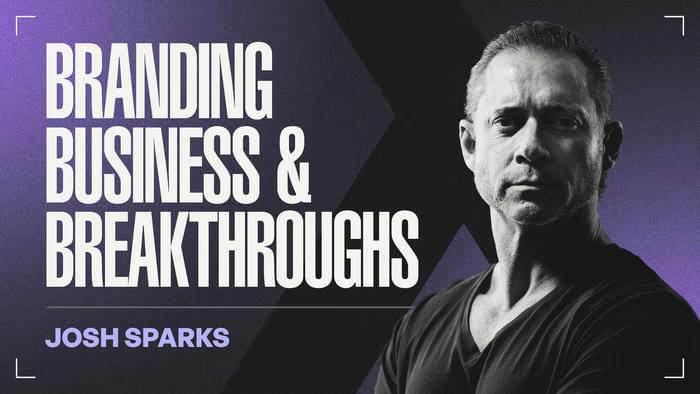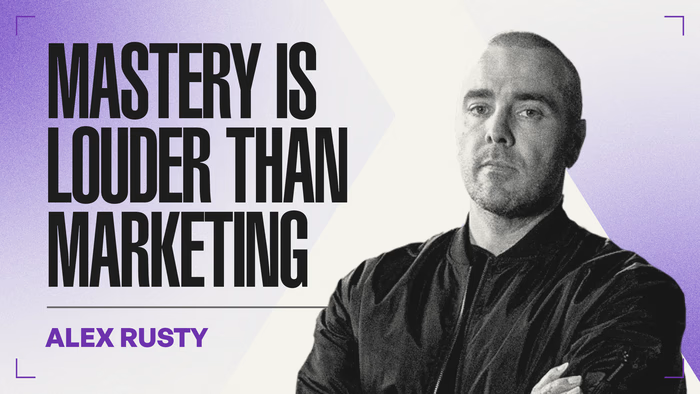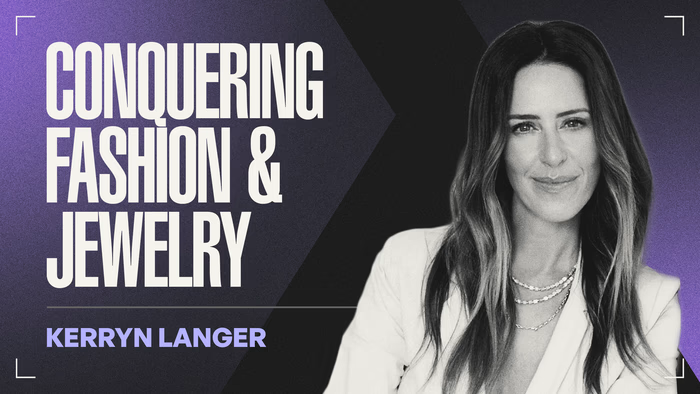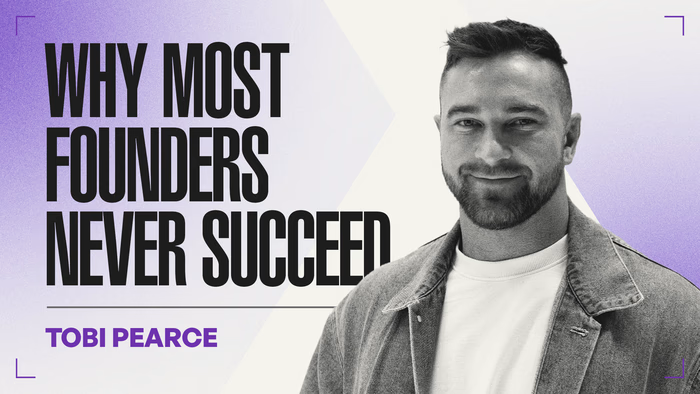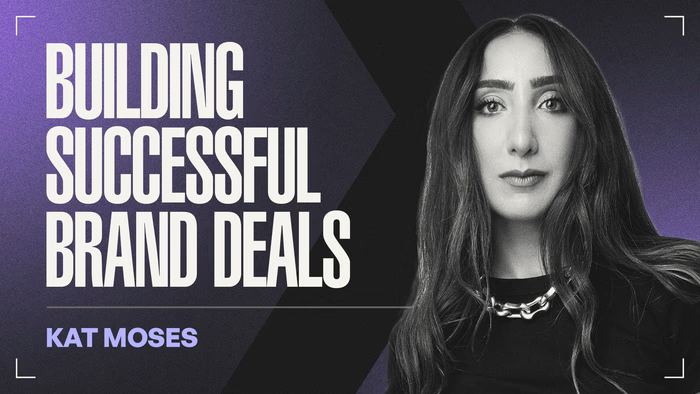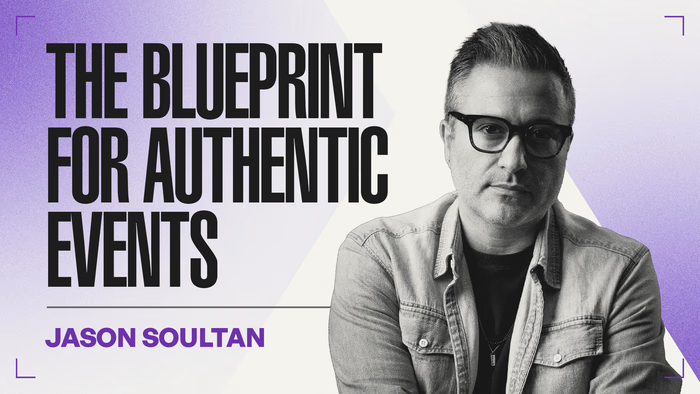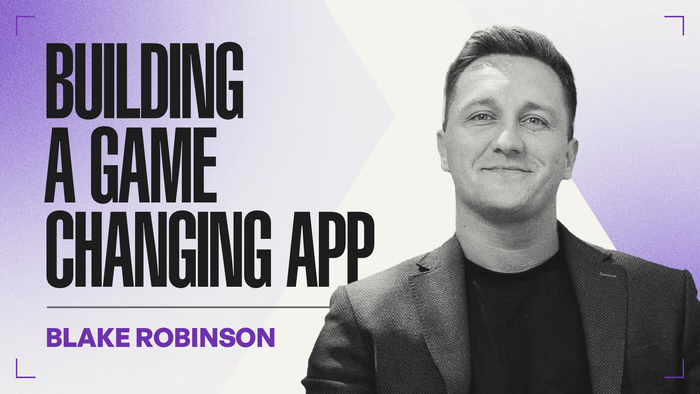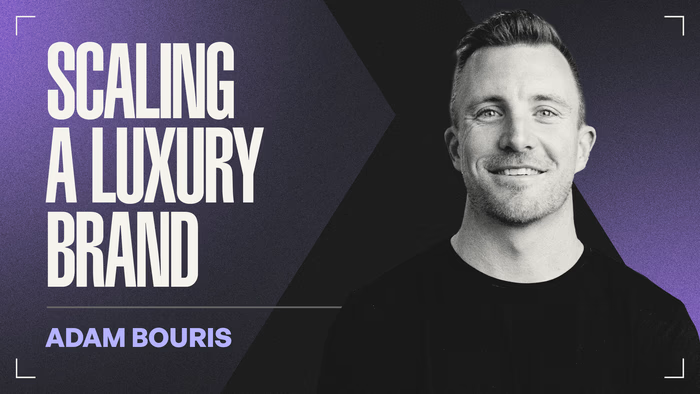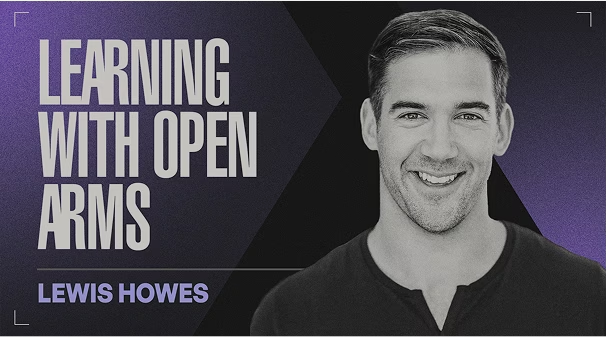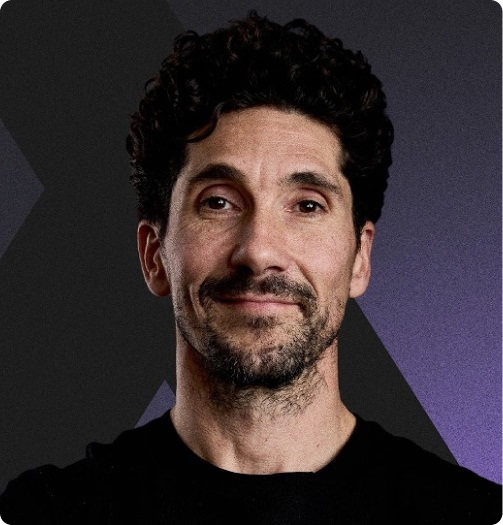


TLDR
Summary
Gus Balbontin, an international keynote speaker and former Executive Director of Lonely Planet, shares critical strategies for navigating market change and fostering innovation by embracing discomfort and disorder. Balbontin argues that "business as usual (BAU)" is the most dangerous state for any company because momentum in a single direction makes adaptation impossible once the market changes. He defines innovation as fixing problems by moving from disorder (uncertainty and curiosity) to order (resources and certainty), a process that must be continuous.
A core message is that we are the traffic, not stuck in it, meaning we are both the problem and the solution. To overcome stagnation, both individuals and businesses must continuously introduce novelty (something you've never done before) to build tolerance to discomfort, which in turn fuels resourcefulness. He advocates for a portfolio career theory to keep options open and diversify risk, and stresses that we must stop telling ourselves the biggest lie: that we don't have time to change.
Highlights
- The Danger of BAU: "Business as usual (BAU) is the most dangerous thing" a business can do, as it inevitably leads to decline and irrelevance. The moment a customer or market changes direction, businesses with high momentum in a single direction are "stuck."
- The Biggest Lie: The single biggest lie we tell ourselves about why we can't have novelty and change is time. Time is an illusion, and the simple solution to a busy life or business is to "learn to let go" of the "emotional baggage" and "sacred cows" (old processes) that consume resources.
- Innovation Defined: Innovation is the continuous exercise of fixing problems by moving from disorder (uncertainty, resourcefulness) to order (certainty, resources) and back again, effectively fighting the universe's law of decay (thermodynamics).
- The Momentum Trap (Lonely Planet): Lonely Planet missed the digital map wave because it was stuck in the momentum of its core business (publishing guidebooks). While the business was profitable, the underlying customer problem (getting from A to B) was solved better by emerging digital players like Google.
- You Are the Traffic: Individuals and businesses are not "stuck in traffic," but "are the traffic." This means that you are the primary source of the problem and must recognize that what gets in the way of your own success is you.
- The Power of Novelty: Novelty—doing something you've never done before—is essential because it drives curiosity, increases your tolerance to discomfort, and forces you to be resourceful (the start of innovation).
- Fighting Your Biology: Novelty forces you out of subconscious living (the energy-efficient "super highways" of routine thought) and into the conscious mind, which is necessary for growth, even though it's energy-heavy and uncomfortable.
- Portfolio Career Theory: Dedicating your life to a single skill is dangerous. A portfolio career spreads risk and keeps optionality open. Initiative should be spread across: BAU (paying bills), Hops (continuous improvement/adjacencies), and Jumps (exploring unrealistic future ideas like quantum computing or humanoids).
- Embrace Discomfort as Growth: The feeling of being uncomfortable or even being judged and sentenced for your creativity is the single most important signal that you are learning and growing.
- Three Steps to Change: The process of personal or business transformation is: Awareness (recognizing the need to change), Willingness (being prepared to act), and Action (small, simple, and now).
Transcript
00:00:01 - 00:00:57
Momentum can be a right. Once you build enough momentum in a single direction, so the bigger your business is, the more speed you have, the more you point in a single direction, the moment the customer change direction of the market changes. >> Gus Balvontin is an international keynote speaker who helps organizations navigate change and embrace innovation. He's an investor and adviser to high growth startups as well as the former executive director of Lonely Planet. If your entire business is just doing via
00:00:29 - 00:01:22
you business as usual is the most dangerous thing. You have just started decline and you will become irrelevant. It's as simple as that. >> We always think that we don't have time and time is an illusion. Right? All time is is our perception of this universe in which we exist which we barely understand. The simple answer to your business being too busy is you just need to learn to let go. Humans struggle letting go. I mean I tell the audience have a look at your wardrobe. People always say I'm stuck in traffic. No,
00:00:55 - 00:01:44
you're not. You are the traffic. Why is that? Because you are the problem and the solution, but you are the problem, right? So, of course, in a business that is struggling to figure out how to chase that customer, of course, we're all stuck in it. Are we stuck in traffic? Is everybody else's problem? No, it's yours. >> What would you say is the biggest lie that we tell ourselves about why we can't have novelty and change in our life? >> Yeah, good, good question. One of the
00:01:19 - 00:02:25
biggest ones right now seems to be [Music] >> This episode is brought to you by Wix Studio. >> So, what exactly is innovation? Oh, >> h I should have been ready for that question. It's a It's a tricky one. I think look, I always say that the easiest and you can go into all sorts of different ways of explaining it, right? I tend to explain it simply as fixing problems, right? And I always say the more, you know, you can fix business problems, you can fix customer problems,
00:01:57 - 00:02:54
you can fix really big problems or you can fix really little problems. Um, but in the process of fixing a problem, right, you you move from disorder to order, right? Something is not, you know, organized and you organize it in a new way, in such a way that delivers a new solution, right? to the problem that you've just fixed. Um, if you want to get geeky, I always say that it's like fighting the law of thermodynamics, right? The second law of thermodynamics suggest that everything decays all the
00:02:26 - 00:03:19
time. So, innovation is effectively trying to pull it together again. It decays and you put it together again, it decays, right? Innovation in health is what? Trying to hold us together so we don't, right? Innovation in business is what? Trying to hold the business together before it decays and disappears. Right? So if you think about it that way, it's a bit philosophical, but anyway, so I think you're fixing problems, right? And uh generally speaking in in in life, you know, when if you think of yourself as an
00:02:52 - 00:03:46
individual, um getting a job or building a business is effectively fixing someone's problem, right? Any job is you fixing the business that hires your problem. And any business that you create is finding customer problems that are worthy of fixing or scalable or big enough that gives you a commercial return. and you go and fix them, right? And and you have a solution. Here's my solution, right? Product or service, whatever it is. And because you move from disorder to order, right? Because
00:03:19 - 00:04:21
effectively you're moving from this this early stage of innovation which is kind of crazy and unknown and a little bit like how is that going to work into a stage of oh I figured it out. It works like this and and this is how we do it. Um you effectively are moving from uncertainty to certainty. Right? So the start of innovation is uncertain. The end of innovation is certain. The start of innovation is resourceful. The end has resources. Right? So as you move through that process and you get to
00:03:51 - 00:04:41
the end, you tend to then find that product market feed, that solution that fixes the problem. And that's where I always say that is a danger innovation is that you end up, you know, concreting that and sticking with it for the rest of your life. And then you become irrelevant just because you actually stopped you know moving through the gap you know. So innovation is this process of going from disorder to order and back to disorder and back to and back to this order and back to like is that
00:04:15 - 00:05:07
continuous exercise of layering bit by bit over time. >> So if innovation is problem solving, >> how do you make sure that you're focusing on the right problem? >> Yeah, great question. Well, often I tend to say the the best way to know that is to listen to your customers and to never ever listen to your mom, right? So I said, don't ever ask your mom because your mom is going to tell you, "Oh, amazing. Well done." Yeah. I always say to people, always remember that most of
00:04:42 - 00:05:41
your ideas are [ __ ] right? Like literally every idea you ever come up with is a [ __ ] idea, right? And it's okay that they're [ __ ] That's fine. Innovation is a volume game. Lots and lots and lots of shitty ideas at the disorder end that eventually filter out until you find the right one to deploy, right? Um, so I think I think you always let the customer tell the story as often as you can. So part of the things that I talk about innovation is that you know the the easiest idea is the one that
00:05:11 - 00:06:00
solves the problem, right? So you understand the problem. Yeah. Deeply. Always stop at the problem. So don't move don't move forward until you understand the problem as good as you possibly can and you understand that is a problem worth solving that you connected to it in some capacity that it annoys you or generates some sort of emotional response in you otherwise there's no point right like like make sure that you find something that has got that once you understand that incredibly as well as you possibly can
00:05:36 - 00:06:39
then you move into solution right you go all right how do I fix that that is the easier idea the harder idea is the idea to test the first idea is how do I test that this hypothesis because at the end of the day your first idea is a hypothesis right you think you can fix this problem this way but you don't know really and the only way to know is by creating something small enough a prototype a test you know a pretotype whatever it is that allows you to see if that hypothesis you had is actually true or not and the only one
00:06:07 - 00:07:04
that can tell you is the customer so if you can do that well enough and fast enough you save yourself you know a a lot of money and a lot of time which is the two things you know. >> So, so if innovation is finding a problem and then I guess identifying the hypothesis uh and then >> and then how are you going to fix the problem >> you know if if you think about the world of business and how fast everything is moving right now with technologies changing um you know there's there's so
00:06:36 - 00:07:44
many so many things kind of converging in a bit of a mast at once at this point in time. How how do you make sure that you're putting energy into the right place? So if you're an entrepreneur right now, what's your advice around where people should try to prod their energy? >> Beautiful. Um so before I go into the answer, I'll say also as well one of the most um uh profound um appreciations you can have in trying or becoming or being an entrepreneur is to value your time as
00:07:10 - 00:08:10
high as you possibly can. Always remember that the most important thing you have is time. That's it. So if you value that really high, you will make sure that you don't deploy your time to the wrong idea or the wrong solution or the wrong problem. So effectively what that does is it forces you to as quickly as you can test is this worth my time or not, right? Because you want to roll the dice as many times you can because most of your ideas are [ __ ] anyway. So you have to keep rolling, right? And the idea is
00:07:40 - 00:08:28
that you do it as fast as possible. Normally on your fourth, fifth, seventh, 10th, 20th roll, you get it right. But it takes a while. Like it's not as if you're just going to roll the dice. And sometimes we see this on whatever, you know, social media, whatever that we see something that, oh my god, they made it so big. It's like before the Google guys roll the dice on Google. They probably rolled the dice 20 times before that, right? And and and so many other seemingly successful people have have
00:08:04 - 00:08:58
rolled the dice many times. You know, entrepreneurs is not the first rodeo. normally is like the 10th or 15th or 20th that actually you figured it out, right? So, value your time really high. Um, how do you find a problem worth fixing or how do you find something that I give you one simple trick, practical trick that maybe the audience will enjoy. Um, I regularly every six months or so draw a picture where I put at the top trends that you can just, you know, ask Chad GPT, Google them, talk to your
00:08:31 - 00:09:27
friends, whatever. just trends at the top and on the side I put you know passions things that I'm curious about or passionate about and then I just keep flipping them over and and matching them up to the other I was telling I told this was the only yesterday someone said to me explain give me an example and I said I don't know 3D printing fishing I love fishing I love 3D printing can I print hooks I don't know and sustainability rise a train okay can I print bodegraable hooks that can you
00:08:59 - 00:09:56
have a 3D printer on your boat that you can you know print hooks I don't know. But but you know, I mean, you start playing and riffing with those intersections and you find, you know, you find things that all of a sudden you go, "Hang on a minute, that's that's," you know, and then the other way to do it as well is is, you know, don't ever switch your senses off to the, you know, to the world around you, I guess. Pay attention. Uh stay stay curious, you know, always ask why. You can ask why of anything.
00:09:27 - 00:10:16
And it's wonderful how deep I do this to my kids all the time. Like why this glass? Why has that shape? Why? And and why why does it come in that size and not twice the size or three times size? Or why is it not tiny? And and how did it get here? Who made it? And and how many of them? It looks the same as that one. They're both identical. [ __ ] There must have been a machine behind this. And and you can do that with a glass, with the coffee, with the book, with the mic. You can just keep going and you
00:09:52 - 00:10:42
find and know I always say to my kids when you start playing that and you start digging all the way all the way down you realize also how many business how many entrepreneurs exist in that entire value chain. >> Wow. >> Thousands. Just behind that there'll be thousands. Thousands of players and people and business people and all the way down to whoever comes up with the silica that actually ends up in that and actually collects it and and packages it and transports it. And so it's
00:10:16 - 00:11:21
incredible when you start you know um pulling the thread you you'll find there isn't that you know there's plenty of problems worth fixing in the world. >> Now when you look at the problems in the world and you think about the power of creativity >> do you think that there's a difference between creativity and innovation? Um yeah, innovation it's it it it encompasses um I think a a you know a journey between like I said disorder and order right a journey between something that
00:10:49 - 00:11:40
sparks you or a a problem that annoys you or an idea that's that comes up in your head but normally the idea is the result of of fixing a problem right you don't just come up with ideas for the sake of it if you ever come with an idea in the shower immediately ask the question why am I coming up with this idea like what's annoying me that makes me jump into this right you know when you say I've got an idea what's behind it like there must be a problem behind it somewhere right there
00:11:15 - 00:12:24
must be uh something that is driving you to come up with that but I think you know I think the um the um the creativity I guess is one element of that that journey of innovation that goes from disorder all the way to order because uh you know inside that there is a lot of um uh you know pieces to that innovation process you know um I always say as well that creativity probably is a little bit later curiosity is first and I think curiosity it's slightly different to creativity and I always call it out like
00:11:48 - 00:12:41
uh creativity is also a dangerous because it can be judged people judge like people can tell you you are creative or you're not creative or >> why do you think people judge creativity >> um and it can be sentenced Like not only they judge you, they judge you and sentence you or you're not. And when you're little, you know, at school, someone will say to you, oh, you're not very creative or you're more rightrain or leftrain or an accountant or a lawyer will tell I'm not very creative. You
00:12:15 - 00:13:06
know, when they self select out of a crew um and I always say to people, look, sure, you can maybe judge that and I'll tell you perhaps we can explore why I think that, but curiosity can be judged. No one can tell you you're not very curious. No one can say that curiosity was good or bad. People can't say your creativity was good or bad. Because if it didn't fix the problem, if it was a [ __ ] idea, it can be judged. But curiosity can't be judged. You just keep asking questions
00:12:41 - 00:13:28
why. And then there's nothing wrong with it. You just keep going. So I always say to people, if anything, lean on your curiosity rather than your creativity. Don't worry about that. That will just come. >> I like I like your thought there around, you know, people will not just judge you. They'll sentence you. >> They'll try to put a box around you. They'll try to hold you to it. And I had memories of this in school where people go, "Well, you're terrible at reading.
00:13:04 - 00:13:51
Therefore, you know, you're sentenced to a life of no longer reading." >> Exactly. >> It's I always say to people, one thing is judging, another thing is judging and sentencing. >> It's very different. And when people judge and sentence, I always stay away. It's it's a dangerous place to be. Judgment I'm not as afraid of or I don't think of it as too bad because I think we all naturally judge, right? We're all measuring and comparing and it's kind of
00:13:28 - 00:14:14
very human to do that. The danger is when you sentence >> is when you judge and then you go this is and it's like before you go hang on a minute come back a couple of steps >> come back you're allowed to judge and let me help you maybe there's other perspectives for you to judge through what about this what like empathy help and then you can explore a lot but when you sentence it's very hard to pull someone back out of that >> so I just want to highlight a stat here
00:13:51 - 00:15:02
because I would love to know what you think about it and it's according to deote only 14% of executives feel confident in their ability to make necessary changes for the digital age. >> Why do you think that is >> decision making? Generally speaking though, executives are not hired to make decisions even though we think that's what they're hired to do. >> They're hired to maintain the order. >> The order and disorder that I was talking about. >> Once the company finds order, that's how
00:14:27 - 00:15:29
it makes money. So the company goes from growth to maintain. >> So you hire executives to make sure that the order is maintained. Yeah. Most executive teams are full of order people and most boards are full of order people. Because societies um promote order as as more important than disorder. >> Why? >> I think because it's tidier and it's safer and insurance companies love it. And you know, it's like it's supposedly an illusion of more predictability and more certainty. And I
00:14:59 - 00:16:14
say it's an illusion because I think it's actually the the the counter in the unorthodox way of thinking about certainty is that actually um because we think we're in control um and actually control is is is the opposite really enough. I don't get any philosophical but it's actually your ability to deal with uncertainty that gives you control not >> well for let's let's get philosophical >> take me down the rabbit hole >> so we pursued not only we pursued order as fast as we
00:15:35 - 00:16:40
possibly can as you know um and we incentivize teams of executives with KPIs and G charts and plans and which are all lies you know like any plan that goes beyond a month or two is you guessing with your mates kind of going what do you reckon [ __ ] midsepptember yeah I reckon you're just joking like no one has it no one knows right none of us know what the hell none of us right so we actually you know either spend disproportionate amounts of time trying to predict the future which is a waste of time or all the time
00:16:08 - 00:17:06
trying to hold onto the order >> both either of those two but no time investing your ability to deal with whatever happens right to invest in being comfortable with the uncert certainty to embrace the disorder to bring novelty in our lives to increase the tolerance to the discomfort of doing new [ __ ] right because of course we don't and the older we get the more we push new things away from our lives so those executives are probably the kind of people that also I mean and I was one of them so I know I'm kind of dissing on
00:16:37 - 00:17:26
them I get the tension right this is the tension that we all need to live with the tension of you know you want to control everything and hold the order and keep it going because it's nice and safe and easy and predictable Yet the world and the way it's changing and you just said before, you know, technology and everything is happening is making the world become more and more and the entire universe is decaying all the time. So you actually have this fight that you'll never [ __ ] win,
00:17:02 - 00:17:52
right? You you just never win. So the more comfortable you feel with that decay existing around you all the time, weirdly enough, the more control you have over your life. So that's why I'm so obsessed with trying to make sure that what I strive for in my life is not control and it's not order is actually the ability to increase my tolerance to dealing with whatever happens, right? And the uncertainty of it. And the best way to do that is to keep bringing new things into your life and keep having to
00:17:27 - 00:18:27
deal with them, right? That's why I say to people, do something new every year that you've never done before. Clients want it all. A slick looking website that can run their business and scale with their success. Wix Studio is built for that. Plan out your client's whole site in seconds with AI powered site mapping and wireframing. Then, when everyone's on the same page, jump into the creative, starting off in Figma or in the Wix Studio editor with super precise layouting tools like grid,
00:17:57 - 00:19:17
stack, and flexbox. Go above and beyond the brief with no code animations, custom CSS, and built-in business solutions. and make your whole vision responsive in a click. And there's zero need to break a sweat when clients grow fast. A dynamic CMS with global design settings and reusable assets lets you turn one page into hundreds. Design smoother and deliver sooner. Go to wickstudio.com. >> What's your definition of novelty and why do business owners need more of it? uh definition of novelty is is is
00:18:37 - 00:19:34
um I'm going to say something that you've never done before, right? Probably and that's enough. Um it doesn't have to be sexy, crazy, or extravagant. Often people tend to think that. And when I put examples, doesn't have to be technology either. Sometimes I say to people like, you know, if you don't own any crypto, go and buy some crypto. Like, but not to make money, just to learn about blockchains and NFTs and digital wallets and um if you don't have a 3D printer, get one. You know, like
00:19:06 - 00:19:58
get one. Get a few mates 200 bucks each. Buy one and come print some [ __ ] I don't know. Um, you know, if you uh if you've never written an algorithm, learn to write one. You know, don't just play with Jad GBT. Actually, write an algorithm. Figure, you know, see what sits behind Chad GBT. see how the algorithm does it. You know, learn how that works. But also, one thing that I would say to people is it would be good for you to discover what your, you know, where your comfort place is. Like, for
00:19:32 - 00:20:33
example, my comfort is in this order, right? It's not that I can't do order. I can read a legal contract and I can understand it and I can, you know, give my thoughts about it. But if you give me a choice between law and, you know, a blank bit of paper with a pen and drawing something, I rather blank bit of paper. Like I rather the craziness and the, you know, and the um and and the anticipation of not knowing what's going to happen, right? Versus the illusion of certainty that I know exactly what's
00:20:03 - 00:20:56
coming and what's happening, right? And the ticking the box and the making sure everything's right. Um and there's and we need both, right? We need order and we need disorder. We need order people and we need disorder people. But my place is disorder, right? So to me to do more and more crazy things it's kind of less novel than to me doing order things. So last year for example I spent an entire week doing the director's course again in Australia you know the um AICD course and I spent a week with
00:20:30 - 00:21:19
accountants and lawyers doing that course that's the opposite of happiness for me right it's the worst thing that I could ever do but why do I do it because it's novelty to me like that actually is forcing me to be in a space of discomfort I read books obsessively I read a book a month right and I read authors that I hate that [ __ ] me to tears that I disagree with profoundly but why do I read them because I need to put myself through discomfort. If I keep reading [ __ ] that I love and appreciate,
00:20:54 - 00:21:54
well, then I'm not uncomfortable, right? So, I I put myself through. So, for you to find novelty, you need to make sure that you always think of I mean, do something new that you never done before, but equally do things in places that you know are not your comfort place, you know, are things that you don't appreciate and enjoy or whatever. And then why is it important to businesses? I I think it is, you know, that novelty which drives curiosity, which drives tolerance to discomfort, which drives resourcefulness because at
00:21:24 - 00:22:08
the very start uh of you solving a new problem that you never solved before, like making glass and you've never done it and you're sitting there and you're trying to figure it out, you inevitably start drawing on all your instinct of resourcefulness, right? And that's the start of innovation. So if a business wants to be more innovative, simply bring novelty into the business. Bring novelty into the people in the business. Make them do things they never done before and progressively your business
00:21:46 - 00:22:36
will come more innovative. Even without even thinking about it or setting up a process or putting a vision or a direction like even your business here, man, you get all these people to start doing [ __ ] they've never done before progressively for an entire year. In 12 months time, this business will change dramatically just because the people in it because all your business is is the sum of its people. That's it. The business doesn't exist. Now, if you take what you just talked about there with
00:22:11 - 00:23:14
novelty, and I I would agree with you. I I tend to look for things that I find are fascinating and difficult and try to dive in uh prematurely to to try to inoculate myself with a challenge and then try to solve it. And it's for me, it's being able to turn my brain on in in places I haven't before. Now if you look at about uh if you look at how a company traditionally kind of um I guess deploys itself in the market. Let's take my agency for example and let's say we have the copy writing strategic branding
00:22:42 - 00:23:44
team the design team the website team the media team. In the event where a business is busy and we're fulfilling our obligations to our customers to make sure that they're happy and they're getting their work on time. Let's say that's humming. What's the danger of staying there and not having enough time for a team to play to test ideas to be able to branch out uh like the Googles of the world? >> Yeah. Well, it is the most dangerous thing. If your entire business is just
00:23:13 - 00:24:09
doing BAU business as usual, you have just started declining, right? And you will become irrelevant. It's as simple as that, right? Any business. Yeah. >> Why? >> Any business. So, and here's the trick. We always think that we don't have time and time is an illusion, right? All time is is literally our perception of supposedly this universe in which we exist which we barely understand, right? And we think time has an arrow. And but the deeper you go into physics, the more
00:23:42 - 00:24:45
you realize that actually this [ __ ] crazy concept is just our really blunt way of explaining our existence to some capacity or a portion of our existence which is this passing of time. So the simple answer to your life being too busy to do something new or a business being too busy in BAU to try new things is you just need to learn to let go. That's the hardest thing. Humans struggle letting go. I mean I tell the audience have a look at your wardrobe. >> Yeah. >> Check every shelf on your kitchen. Look
00:24:13 - 00:25:08
at your garages. Look at your shed. do a quick check of your emotional baggage and how much [ __ ] you're carrying that you shouldn't be carrying and you should let go. >> And business are the same. In a business you maintain software, processes, systems, sacred cows, things that have worked in the past. So you keep doing them because of course they need to be working and bit by bit keeps getting bigger and bigger and bigger and you keep hiring all the people to keep BAU going and you don't learn to let go.
00:24:40 - 00:25:35
Businesses need to let go. You need to let go as a person to be able to create the space to craft something new. The only way to pull the future towards you is by creating the space to be able to play with it. If you don't, the future will hit you in the face. Simple as that. So, I think that's that's important. So, you need to to make sure that your business continues to let go and continues to play with that future regularly. And I'm not saying disproportionate amount of time like
00:25:07 - 00:26:16
sure let's say 809 and depending on what stage you're in your business and what industry you're in and so on you know you need to have a percentage of time that you deploy to be a you because they pay the bills. I get it but you always need to live a little bit for >> that future stuff because otherwise you end up caught up. Now, if you needed to explain the value of play and experimentation to a resultsdriven leadership team, how would you approach it? >> Um, perhaps by explaining first the
00:25:42 - 00:26:52
asymmetry of innovation. So, a a results kind of driven, you know, person or team, it's likely to be sitting on the order end, right? is likely to be uh getting returns on concrete. I always call right the once you find order you concrete it and once the concrete sets all the business looks for is a return on concrete not a return on investment. You want a return on the [ __ ] that you put down in the business. And I I'll give the case for you, right? Let's let's say this. All the cameras and all the equipment
00:26:18 - 00:27:04
that you buy and all the elements that make up this business are assets that cost you a lot of money. And if you had a CFO, I don't know if you do have one, that person is sitting there going, "Holy [ __ ] we put all this capital down. We need to get a return on this capital." Right? And think of any business, right? If you got if you're a bookmaking machine like Lonely Planet, you need to make sure you get a return on paper and glue and printers and all the systems that you set up to make
00:26:41 - 00:27:28
books, right? So, even if you come up with a website that it's amazing, you're going to want to sell books in that website. You're not going to think of fixing the customer problem, which is to travel and fixing traveling in whatever way you can. You're going to want to fix travel with books. You're going to want to fix any customer problem with cameras and microphones because that's the assets, right? I'm exaggerating the boom, but you know, >> it makes sense to me because you're
00:27:04 - 00:27:51
saying that like people get so fixated on the immediate return of the the singular thing that they're investing in versus looking out and >> at the at the actual customer problem that it's probably not that book or not that microphone or not that content. Maybe it's actually what is it that he's trying to do and what is he trying to achieve. And right now we fix it this way, but in 10 years time this will probably not even be a concept anymore. I don't even know what the concept will
00:27:28 - 00:28:29
be. these things will disappear maybe and I don't know you know whatever we'll be wired up inside with chips in our heads who knows or 20 or 30s I don't know but it will never be this way again right and if your business doesn't explore that future then of course your business has gone now back to the asymmetry on the order end any kind of failure it has significant consequences because that end is the one that touches the customer touches the market touches law touches regulation
00:27:58 - 00:29:03
touches safety, you [ __ ] up and you pay a price that is significant. So the resource the resources driven return people, right? The people that are going, we're going to return on this with the order people with the important people. Society praises us because we know law and maths and accounting and you know we're important and they laugh at the disorder end, the designers, the creatives, the you know the whatever, you know, the the people that look loose and crazy and like they don't care
00:28:31 - 00:29:15
enough, right? Because of course the way they observe failure is a person until they figure some [ __ ] out, right? The the way that's the asymmetry, right? The symmetry is that on one end you've got someone that fails and holy [ __ ] we now go to jail where in the other end someone fails and goes I need to fail as many times I can until I figure out what the [ __ ] I'm doing right because we don't know exactly I know this problem is worth fixing I don't know how I'm going to try I'm going to try the
00:28:53 - 00:29:44
biggest assumptions until I can figure out what the crux is as we talked about and then I've got something and then by that point in time I can hand it over to the other people and say yeah here make money out of it go and then I go back again and and do it all over again right that asymmetry makes the resource you know return people observe us as this sort of people as lower. It's like oh well failure has no consequence for you. Meanwhile, we are there trying to reinvent their future because we focus
00:29:18 - 00:30:17
20 years out, 10 years out and they focus 12 months out, right? So we're both just as important as each other. It's just that we have slightly different lenses to judge what we do. But often businesses, boards, the way business is run, the word corporate law works in Australia, it it judges all of it inclusive of disorder with the lenses of order. And you make a mistake at that point in time. So how do you convince them? First, by explaining the conundrum. Second, by showing them how important that disorder is. And third,
00:29:48 - 00:30:53
by showing them, hey, this needs to small simple now. We don't need complex big later. We don't need big returns on this stuff. We just need to iterate until we find what our assumptions are that are the most important that we need to fix. >> It reminds me of LVMH as a collection of businesses like if you think about Louis Vuitton, Gucci, St. Laurent, they typically put the creative type at the helm of the business instead of the more law side of >> the order type people because in fashion
00:30:20 - 00:31:11
things have to be experimental and wild and chaotic in order to get >> fairly fast >> and fast moving and so forth. And you're saying that, you know, let's say in traditional businesses or service- based businesses, people are spending too much time on the order side of things and not enough time um or or a disproportionate amount of time on order instead of experimenting a little more. >> Yeah. Yeah. Yeah. Yeah. But I mean I was saying to you the the conundrum will happen will be happening in those you
00:30:46 - 00:31:45
know in Louis Vuitton as well. By the way, perhaps the board and and and and you know and uh and the sum of the behaviors of the people because that's all the business is probably have the right proportion in it if they continue to be successful financially and continue to set trends in the market and so on. So you would judge it that they're doing a good job, but the tension doesn't go away. The tension doesn't go away. I can guarantee there is lawyers inside there fighting hard to
00:31:15 - 00:31:54
make sure that hey let's not just change this is working really well let's just keep going right and the designers going oh [ __ ] that was last year let's go again and they be like oh man it's working let's just stick with it we're making money or whatever it is right that tension will exist everywhere and you just have to be careful that you don't because like I'm not saying I'm not saying that one is better than the other critical and depending on what industry you're in is what proportion
00:31:35 - 00:32:22
you need as well like if you're in mining you probably don't want a bunch of creatives going what if we did get a different or if you're in health, right? Like you I don't know the airline industry. You don't want pilots sitting there going, "Guys, we're going to try something new. Hold on." You know, like [ __ ] No, you know, you you you I'm super creative. Let's try people going, "Hey, >> let's try a barrel." >> Yeah. Yeah. Exactly. Oh, yeah. Settle
00:31:58 - 00:32:48
down. We find a play. We got people behind us. Let's just [ __ ] >> We're going to test the seat belt. >> Yeah. Yeah. Let's just chill a bit. Right. Um but but so depending on the industry they're in and you call that an industry where probably the the proportion is to be more skewed towards hey let's make sure that this order is really celebrated here because we need that to keep on top of the game right so but >> even even if you I recently saw with let's say airlines uh there's a company
00:32:22 - 00:33:22
overture now which is um uh experimenting with um supersonic speed for conventional flight um and I I understand it I think it Delta airline had ordered 15. >> Oh yeah, I saw I saw that. >> There is a bit of that happening and and and you know arguably it's like the the Concord of our age. >> Yeah. Yeah. Yeah. Yeah, >> I tell something really fascinating about industry, I I think at least um is that when when these industries or you know businesses that that say we know we
00:32:53 - 00:33:40
can't innovate because we're highly regulated or safety is important or whatever which is what I was saying before like our pilots can just go ahead and do whatever they want you know they need to and the truth is the airlines does incredibly well at actually um creating simulations >> and playing there right >> so I always say to the finance sector which because we can't because we're highly regulated we're a bank create simul simulation, play on the side, muck around someone's life. If someone says
00:33:16 - 00:34:04
to me, "No, I feel really unsafe because I think this is too dangerous." I mean, create a simulation, do a parallel, play with that, see what happens there. Right? So, airlines do really well at that. That's one of the most incredible ways in which airlines continue to innovate non-stop. And it is still the safest way of transport. Even though we get ourselves on, you know, we defy gravity and and do all these crazy things, it's safer than anything else that we found to be able to transport
00:33:40 - 00:34:31
ourselves as humankind. It's incredible. The second thing they do incredibly well, which I wish the health industry, you know, adopted was when they [ __ ] up, which is one of the most important bits out of innovation, when you do [ __ ] up, make sure you have a black box that you can go and open to find out what happened and look in the mirror. Imagine if every surgery had a black box and every time we [ __ ] up, we looked at it. >> How much better medicine would be today. >> So, meaning like uh something goes
00:34:06 - 00:35:00
wrong. >> When a plane goes down, guess what we look for first? >> You learn for it. >> We look for the black box. We look for the black box and we open it and you know whatever. I don't know what the stats are, but most of the times it's human error, >> right? >> And do we still get on a plane? Yep. We still get a plane. Why? Because we see those humans, pilots and airlines facing the problems going, "Yep, that plane was wrong. That thing went that was human error. We we're going to
00:34:33 - 00:35:17
change that. We're going to improve that. We're going to make it better. Keep coming." And we keep going because we see that they're honest about when they [ __ ] up. But when that happens in a surgery, oh my god, we don't get that, right? We don't get someone to go, "Hey, look, I'm trying to fix you, but I made a mistake." If only we had the record of all the mistakes, potentially we wouldn't be making those mistakes again, >> but we keep making them because we don't
00:34:54 - 00:35:42
have the, you know, the the courage to face that mirror, you know, that the industry does. So, that's another really beautiful part of innovation is is actually having a black box everywhere. Like if you can that's why you know these days me data and measuring is really important because if you can measure and and understand what's happening you learn so quickly and you can iterate way faster right >> so I want to shift gears here slightly to to touch on the same point we're now
00:35:18 - 00:36:22
talking about with the blackbox which I love and it's it's learning from failure uh now you witnessed Lonely Planet a company that was essentially the Google of travel before Google even existed uh get disrupted can you take us to the moment you realized that this giant was in real trouble. >> Um, yeah, really good question. I'm going to People might be disappointed at this, but um I I often we I mean I think they might disappointed because you know you might hear a story of like, hey, I
00:35:50 - 00:36:39
saw it coming. You know, I was 10 years and the truth is that it's not we most of us tend to learn these things in hindsight. >> Yeah. And hindsight can be a real [ __ ] because it's like, well, it's too late now. It's too late now. But if if you were to go and look into the crystal ball, >> what what happens? >> Well, it's interesting. So, >> the the the book machine like publishing had been around for the better part of the last five centuries, right?
00:36:16 - 00:37:09
>> Well, for the viewers at home, like do you mind just describing what the business was? >> Yeah. So, Lonely Planet was a uh a a travel company that uh produced uh guy books for the better part of the last probably 200 years or something, I think. 200 years. >> Yeah. Guy books have been around for about 200 years. Um and they were producing guide books like a couple hundred years ago for for those early really early travelers with epic looking maps and um yeah. So amazing like it's
00:36:42 - 00:37:45
been around for the concept has been around for a while. Um it was a mechanism by which you could you know go to an unknown place and somewhat somehow uh have a little bit of knowledge that allows you to move around and and understand the place you know from some practical stuff which was you know when did times of the ferry and the bus and the trains and where you know accommodation and where do I eat and >> so you would open this guide book. I remember seeing my stepfather as a child, >> you know, pull over to the side of the
00:37:13 - 00:38:09
road swearing, oh, we're on the wrong road. He'd open it up and he'd stare at it for 20 minutes and draw things. There would maps and there would be, you know, so there was probably, you know, whatever a percentage of it was was practical information to go and do something and the remaining was, you know, opinion. that go here over here or you should visit this place over that place or if you go to this place don't don't miss doing this or eating this or whatever. So those were the guy books
00:37:41 - 00:38:41
and there was kind of plenty of them and guy books guy companies travel guide book companies kind of uh started proliferating in the early '7s which is exactly when Lon was born. um partially helped by the jumbo the 747 you know the boring uh which started carrying lots and lots of people around the world so lots and lots of people were starting to go to lots of exotic places >> because you don't need a guide book if you live in Melbourne and you're going to you know Sydney right or you maybe
00:38:11 - 00:38:59
you would but generally you would just ask a few people >> and you go to Venoat to you're like what do I do >> yeah what do I do what I so so for for the better part of you know those 200 years and even more so you in the 70s, 80s, 90s, and early 2000s that guide book was, you know, Lonely Planet used to be called the Bible. They used to call it, right? Because it was like the thing that would just I'm holding on to like and I can't tell you how many stories when you say I used to work from
00:38:35 - 00:39:22
the planet. People would just pour their hearts and souls into telling me how they met their wife when they were traveling in India or how oh my god the book saved me because one night I was late and I didn't know where to go and the book told me to walk three blocks or whatever and it was so um you know traveling is a is a is a visual experience, right? traveling. The main feeling in traveling, weirdly enough, and people don't understand this often because they think that it's all fun and
00:38:58 - 00:39:46
games. Actually, the number one, you know, uh, sentiment in trouble is fear. It's fear of the unknown. It's just, you just don't know. So, you want to know. So, of course, the guy book is like, "Ah, okay, now I know. I know I can stay here and this and I can eat here." >> In a strange place, like me and my team were in Mexico City recently, and just something little where we woke up in the morning and we were like, "Can we even get coffee in this area?" >> Yeah. So you you'd open Google and you'd
00:39:23 - 00:40:15
type it in and 10 minutes later you'd find something. Just those little things around like well I'm used to getting my coffee in the morning now I'm fearful I'm not going to get coffee before my keynote and like and whatever. And you know what the funny thing is sorry side and then I'll come back if I remember where I was in in the truck. But the wonderful thing about traveling is that is the only way we know so far uh on how to manipulate time. Travel slows down time, right? When you go to a place that
00:39:48 - 00:40:42
you don't know and it's strange to your senses, you know, your amydala and a bunch of other secret circuitry in your brain switches on to go, "Holy [ __ ] what's going on around me? These smells are different. These sounds are different." You know, this, you know, all these landscape is different. I better record some memories here just in case, you know, like this is dangerous. You know, that's where the fear comes in, right? So you start recording and in the process of layering memories thick,
00:40:16 - 00:40:53
you slow down time. That's why when you go away for a weekend to somewhere that you never been before, it feels like a month away. It feels then, you know, you come back and you go, "Oh my god, it feels like I've been away for like a month, right? And you've been away maybe for a week or because you've just slow down time, right?" So I always say to to the travel sector, hey, don't forget you manipulate time. It's a it's a it's a gift, right? It's an amazing thing
00:40:34 - 00:41:15
>> because when you're in a strange place, you just pay way more attention to things. Yeah, >> dude. It's like it's amazing. It's like you literally are manipulating time. He's wonderful. That's why I'm so obsessed with it. And you know, I don't have a religion. So for me, in the absence of religion, travel is mine. >> So I travel obsessively with the kids, right? To us is the fabric of a family. You know, we we go places. So anyway, back to the um to the Lonely Planet
00:40:54 - 00:41:45
thing. So travel guide book, right? And there was quite a few. There was photos from us, let's go, Lonely Planet, Rough Guides. There was quite a few famous ones that in the 70s, ' 80s, 90s, you know. Um, and we were effectively the market creators, right? We >> What do you mean by market creators? >> Well, we created the market in those places that we send people to go. Right. >> Right. So, you would control where the traffic would go like kind of like kind of like SEO.
00:41:20 - 00:42:12
>> Yeah. And we would tell them, go to these place, do these things, right? But weirdly enough, all those, you know, guide book companies will only make five bucks per traveler per trip because we will sell them one book, make five bucks, whatever. They'll spend $10,000 in the trip and we'll make only five bucks and the other 10,000 bucks will go to the market that we just created on everyone's behalf, >> right? Because you can't track or constitute uh you know money back from
00:41:46 - 00:42:33
where it was spent. >> Yeah, but who figured that out? >> Google, >> Expedia, Trip Advisor, all them. They started clipping the ticket. They go, "Hang on a minute. Lonely Planet creates the market. Beautiful. We just put the market online and every time someone wants to book something, we just clip the ticket." So that's the wave that lonely planner, rough guides, let's go, whatever. That's the wave that we missed. >> Should you have seen it coming?
00:42:09 - 00:42:58
>> Oh, it's difficult. Like I said, in hindsight, yes. Right. And it's not that we didn't see it coming. The truth is that when you're in the business, there's two things that I want to share with with everyone and make sure that that you know, hopefully these concepts provoke your thinking in your own life and in your own businesses. One is that momentum can be a beach, right? Once you build enough momentum in a single direction, remember that momentum has directionality and velocity and mass. So
00:42:33 - 00:43:15
the bigger your business is, the more speed you have and the more you pointed in a single direction. The moment the customer changes direction of the market changes, >> you [ __ ] because you're stuck in that momentum and you're going, I can see it going that way. You're going, [ __ ] I know. >> It's like you missed the turnoff. >> Yeah. And he's like, but we should turn. We can't turn. We're going this way and that's it. And he's like, we know we're
00:42:54 - 00:43:43
going to be coming. I always say to people, don't think, you know, people go, "Oh my god, Kodak, how stupid." As if they didn't know. Of course, they knew it was changing. They just couldn't do anything about it. The people in the business were stuck in that momentum going, "Fuck, we should go that way." I know. We totally should, but we can't. Right? By the way, momentum is not something that a business builds. Industry builds momentum. But each one of us individually, we teach our kids to
00:43:18 - 00:44:07
build momentum. And it's super dangerous, right? Because once you build it and you push novelty away from your life, holy [ __ ] that stuff owns you and you just rinse and repeat every day because you think that's what you should be doing. So that's number one. Concept. Concept number two is that you are traffic. You're not stuck in it. People always say, "I'm stuck in traffic." No, you're not. You are the traffic. You're not stuck in it. >> Wow. >> Right?
00:43:43 - 00:44:28
>> And and that realization is a powerful one because you know you have a car, too. Next time you call your wife, you know, just, "Hey, baby, I am traffic." Right? I'm stuck in traffic. No, you are the problem. You are the problem. You are the problem. Why is that? Because you are the problem and the solution, but you are the problem, right? So, of course, in a business that is struggling to figure out how to chase that customer, of course, we all stuck in it. Are we stuck in traffic? Is everybody
00:44:05 - 00:44:49
else's problem? No, it's yours. And B, we can see it, but we can't do anything about it >> because we're stuck in it. So, it's not that Lonely Planet didn't realize. It's not that we all didn't realize. There was enough clever people at Lonely Planet and Rough Guys and Photos and Fromers and all those companies and we could see Expedia emerging and Trip Advisor emerging and eventually Airbnb and others and we could see it. But of course, you go back to your business
00:44:27 - 00:45:23
back to your BAU and if you've been doing that for a long time and if you put concrete all over that and if you push novelty away from your life and all you've been doing is it's hard to reinvent yourself and change yourself and follow that customer from that place. >> Yo, my name is Dane Walker and I am disgustingly obsessed with branding. I had to figure out a way to do branding every single day. So, I branded myself. >> Then I started my agency, Rivalionary >> and hired a team of branding mavericks
00:45:05 - 00:46:02
hellbent on creating brands so good that they'll make your competition their pants. So, here's the thing. You want your brand to go viral and Rival makes brands go viral. That's why we're offering you a free 30inut branding session to get an expert's opinion. If you don't believe me, the proof is in the pudding. Here's what clients have to say about Rival. Rival is trusted by brands like Nutrition Warehouse, Light My Bricks, and Voomie. So, if you want to absolutely smash the competition and
00:45:34 - 00:46:26
make your brand go viral, hit the link below and book in your free 30-inute branding session. Now on this point like with with the business and and the people keeping the law or the order and the structure the book people the order people you have this beautiful diagram in one of your keynotes where you talk about you know the business is progressing they're making money they're growing things are going good meanwhile in the background Google is playing with the novelty of digital maps people don't
00:46:00 - 00:46:51
want to adopt it yet but they're spend spending money on messing with this system and you know it looks like they're doing terrible because they're pouring money into it and then it kind of >> J curves and then >> springs up. But just take us into that because I think it links nicely into to what happens with Google >> and so normally you again and that it's it's perfect. So your graph looks okay like your numbers look okay for all intents and purposes you're doing a
00:46:25 - 00:47:15
great job because you are actually creating good margins paying people's wages you know sticking to corporate law in Australia or whatever in the world you're not you know you're doing great uh and of course this noisy stuff of the market of trends of people wanting to play with stuff or whatever that are these disorder people and they keep failing anyway so you keep looking at them going what's the point of what you're doing anyway is not you know you know you know So, so what happens is
00:46:51 - 00:47:45
when someone enters the market and promise a better solution than the one that you have, you know, a new way of solving the problem that you solve. Generally speaking, most of us and most businesses tend to laugh and we go, that's not going to happen or that's not going to. And then the double dissonance is when they fail because you go, I told you so. See, of course they were going to fail. Those maps, you can't map the world, Google. You should go and do search. That's what you're good at. Let
00:47:18 - 00:48:08
us do the mapping. We know how to do mapping. We've been ctographers for a long time. It's been happening for centuries, mate. It's a century old craft. Let us do it. You just do search. And of course, they keep tinkering, playing whatever, etc. They're pointing to a real customer problem because remember the customer problem is not to buy maps or use maps. The customer problem is getting from A to B, >> right? You know if I can get from A to B in a better way, faster way, cheaper
00:47:42 - 00:48:38
way, quicker way, seamless way, I will go there over anything else in >> the customers always pick the path of least resistance. So what Google was pointing at was how do I get people from A to B real fast and real well and and you know efficiently and effectively and so on. So they weren't thinking how do I improve maps? That's not what they were thinking. They were thinking they were looking at the crux. How do I cliff get exactly the biggest assumption which was >> hang on hang on the job here actually
00:48:11 - 00:48:56
the problem here is is actually to get people from this place to this place. Someone that doesn't know how to get from here to here they need to figure out how to get from here to here. That's the problem. Not to buy a map, not to read a map, not to make the map more legible, not to give it color, not to none of those things. None of those things which we thought were the problems. That wasn't the problem. So of course Google comes in fails you get this guys here we told you so and then
00:48:33 - 00:49:28
guess what they figure it out but by the way that graph is the same AI AI has been around for a while when it came out the first time we thought oh fail >> it was a novelty >> failed for ages in fact AI has been in that valley of death for a long time a few decades actually and now everyone thinks that this is an overnight thing it's not it's been in that valley of this for a while and now it's starting to look holy [ __ ] [ __ ] Holy [ __ ] Holy [ __ ] Holy [ __ ] Right. And it's
00:49:01 - 00:49:46
starting to come out. 3D printing came out. Oh, we're going to be able to print those things. Went down a real terrible, you know, death valley. At one point in time, all you could do with 3D printers was print bracelets. I don't know if you remember. They promised the world and it was bracelets. I was like, "Shit, really? Is this it?" Like, I thought it was going to be like >> now it's like furniture. >> Now it's like starting to take off. Organs, food, whatever. Everyone's like,
00:49:23 - 00:50:21
"Holy [ __ ] careful." Cryptocurrencies came in, right? fail. They're probably stealing that death value. They haven't come out yet because it's like we haven't figured out the the legalities around it, the way it's going to work, etc., etc. But at some point in time, I'm not saying which one because likely none of the ones that we see today, but something to do with blockchains and digital wallets and exch whatever, some of that will come through inevitably because we've seen it now. Napster comes
00:49:52 - 00:50:39
in, fails, Spotify goes through. Do you know what I mean? Yes, >> this pattern >> is very common. Exactly. So, you have to pay attention. When you see that and it looks too stupid to pay attention, pay attention. >> That's exactly when you pay the most attention when it sounds crazy. >> Um, so coming back a little bit to novelty because I I'm fascinated with your mind and and how you've integrated this into kind of like your business life, your personal life, and and you
00:50:16 - 00:51:50
know, you have a powerful mantra, and that's to embrace the discomfort of novelty. Why is the feeling of being uncomfortable or even looked at as being stupid uh the single most important signal uh that you are learning and growing? Um, I think I think like I mean I probably covered some of this already, but I think it is um it keeps your your wonderment and playfulness um and a lot of fun alive in your life. You know, just uh it keeps your tolerance, you know, high to the to that discomfort that is so critical.
00:51:03 - 00:52:13
It keeps your perspectives in check and your judgment in check and your sentencing most importantly. Um I think it drives um it drives collaboration because inevitably when you starting embarking into new things you you know you have to engage others to help you in that journey. Right? If I'm going to go and start learning to skateboard I need to start talking to some people that are doing it you know and and figure it out. So it drives connection. It drives engagement. It drives um so there's just so many
00:51:37 - 00:52:37
benefits and um and it's free and it can be you know and and it's you know it's it's you know the only barrier to do it is is is you. So as soon as you get out of your own way you're able to explore this entire world of and it doesn't like I say it doesn't have to be extravagant or expensive or anything. curiosity. And I mean, novelty can be anything that you've never done before that allows you to experience, you know, and hit your neural circuitry with something that it
00:52:08 - 00:53:02
goes, "Wow, what the hell is this thing? This is this is new and I've never seen it before and I need to deal with it again." It's it it also forces you to snap out of your subconscious more regularly than not. Conscious living, it's a bit slower. Subconscious living is fast. >> What do you mean by subconscious living? Well, your brain, and this probably has to do with a lot of stuff we were talking before, but the the funny thing about all this novelty stuff and whatever is that technically you are
00:52:35 - 00:53:34
fighting your biology, right? Your biology um you know um your brain spend whatever two and a half million years hunter gathering, right? Um and it's only in the last whatever few thousand that it's been doing kind of this new thing that we're doing right now. Like this [ __ ] the brain is going, "What the hell is this?" two and a half million years it was like find food you know reproduce um fight u protect yourself like that that was about it right and and because there wasn't much energy
00:53:04 - 00:53:51
around right the brain developed this wonderful you know through evolution it's amazing it developed this ability to save energy and the way it saves because it consumes a lot of energy the way to save energy is by burning the same europath like it just again I'm butchering it but follow me you effectively rinse and repeat and if you keep using the same europath over and over and you stop effectively thinking about it. You commit it to the subconscious. >> Okay? >> The brain just does it without you even
00:53:29 - 00:54:17
thinking about it. >> If I could paint a picture here for a moment, I I I had an uh NLP practitioner explained this to me. It's like imagine your brain like a city >> and there's these super highways Yeah. >> of information from like one side of the city to the other. So, for example, if you're a very routined orderly based person that does the same thing every day, >> your brain's not forced to rebuild those roads through the city. just keeps using them.
00:53:52 - 00:54:35
>> So just keep using the same highways and then as soon as you throw yourself into glass blowing all of a sudden the city in your brain goes, "Oh my god, we got to like rebuild all these roads and what do we need and where do we need?" Exactly. Exactly that. So the roads that you always use are your subconscious. The new roads that you may need to build or use or reconfigure is your your consciousness, right? It's like you're actually present. It's a way of explaining it, right? By the way,
00:54:14 - 00:55:04
>> so you're saying by by like creating new pathways in your brain, you're you're uh you're doing what exactly? >> You live slower as well, right? That's what I was saying before. You actually live life a bit slower. But what you are doing is forcing yourself to the discomfort of that because that's the thing your brain in the subconscious because biologically it incentivize you to find that because the subconscious using that highway the subconscious is energy efficient. You walk without even
00:54:39 - 00:55:22
thinking you drive. >> It takes more energy to rip the city down or rebuild it. >> Yeah. Like so so you keep using that breathing doesn't take any effort. walking the SN effort, you know, like you're just literally just ripping the same stuff that you already lay down and you just do it over and over again. In fact, in sport, a lot of the stuff that you try to do when you serve in tennis, when you play golf or whatever is not think because when you think, you butcher it. When you don't think about
00:55:00 - 00:55:53
it, it just happens automatically. So, repetition builds that highway, builds that neuropath, and then you just serve over and over again, and you don't think about it. Doing new things forces you into the conscious mind, forces you into rebuilding roads, forcing you into new neurosircuits, slows everything down, makes you think. It's more energy heavy. It makes you tired. Doing new things. By the end of the day, you're [ __ ] exhausted. You're like, "Oh my god, that was hard." I me going to the director's
00:55:27 - 00:56:11
course and spending an entire day with accountants and lawyers, you know, in a classroom. By the end of day, I was ex I was like, "Oh my god, this is so hard." You know, because I'm using a lot of energy, right? And your brain is and your brain actually kind of that's why you're going against your biology. Your brain kind of punishes you. I mean do the exercise. I mean you don't have rings. Grab a ring or a bracelet or something. Put it in another hand and your brain immediately starts punishing
00:55:49 - 00:56:30
you. Immediately your brain goes what are you doing? Put that Put that [ __ ] back where it was. Like don't now I can feel it. Before I couldn't. I actually switched off all the nerve because I've already knew it was always there. Now you put it in your I'm thinking holy [ __ ] That's why in a, you know, in a business you change offices, everyone panics because he's like, "Oh my god, I need to be conscious now. What the fuck?" Or when you're driving home and
00:56:09 - 00:56:56
there's a roadblock, you go, "What are you, you stopping me from driving home the way I've always driven home? I know exactly how to do it. Now I need to think about it. Oh my god." You know, like your brain goes into disarray because your brain starts punishing you going, "No." That's why when you listen to new music, generally you hate it. Those are the older you get that you don't embrace new music because you want to listen to the notes and the chords and the songs that you've always known.
00:56:33 - 00:57:21
That's when you go to a band that you've always loved that they sing that song in that LP that you've always loved and you go live and they play it different. You [ __ ] hate it. You're going no play it the way I've no you know when the guitarist decides to do a new solo and you're going no you butcher the song I knew exactly because your brain goes I love it. Just keep doing the same [ __ ] Keep listening. That's solo. I know exactly what's the next note and the
00:56:57 - 00:57:46
next one and the next one. So, it's hard to go against your biology, right? You're fighting it. So, novelty has this wonderful thing of getting you used to stepping outside of those highways and going into the little back streets and figure out new pathways and and learning new things, right? Yeah. >> How how does you know someone who's been um let's say programmed their whole life like this and now they're you know trying to find a better place for themselves in the world.
00:57:22 - 00:58:24
>> Yeah. What are some things that they can start to do to shift themselves to get out of this uh confined space of old thinking? >> Yeah. Um again, back to my first one of the original points that I made. Small simple now. Don't forget that. Don't overwhelm yourself with this, you know. Okay, I know what I'm going to do. I'm going to, you know, I've listened to this podcast. I'm super inspired. I'm going to resign and I'm going to start settle down. Um, not that I'm not, you
00:57:52 - 00:58:39
know, I I think we we do want to inspire action, but um, you know, the process you're going to follow is likely to I always say to follow these three steps. Awareness is number one. Willingness is the second one and action is the third one. >> Okay, break that down. >> You become aware of I think I've been living in a box for a long time or I think my business is stuck or I think I'm only doing BAU. >> That's the first step, awareness. Um, you might need to share that awareness
00:58:16 - 00:59:04
with others because alone you probably can't do anything. you'll need others around you to help you. >> So, what if someone is alone and and their let's say their circles and those that they're doing business with aren't quite willing to go on that journey. >> No. Yeah. Yeah. But you have to spread. No, no, I I get that. But you need to make sure you always remember that that even when you think you're alone or you're a soul trader or something like that, your team is always bigger than
00:58:40 - 00:59:40
you. And if you have a business, your team is not just the 30 people that work here. Your team is these people. Your team includes your competitor. Your team includes your customers. Your team includes me that I come in here to do this. You your team is always bigger than the notion of team that we have been brought up with. Right? Team is larger. And if the more you can think about your team as all the connections that you have in your network that can help you achieve your goal, whatever that is, and your success, whatever you
00:59:10 - 00:59:55
define that as being, uh that is your team and that is something that you need to tap into all the time. And the first thing you need to do is make all that network aware. Aware of other what you're trying to do, what you think success looks like, what's the problem worth fixing, why this is important. You need to make them aware and yourself aware. Like the moment you have that epiphany, it's like, oh [ __ ] this is important. The second thing is actually having the willingness to do something
00:59:33 - 01:00:18
about it. And in that process, some in that network may be willing, some may not. Like lots of people became aware of climate change and say, "Yeah, I'm not happy to do anything about it." >> Right? At the beginning not a lot lot of people deny l I'm not even aware of it like dude and then it's like okay I'm aware but I'm not willing and then eventually you go okay I'm aware and I'm willing but then what action do I take so that's the third one is aware
00:59:56 - 01:00:42
willingness and action so I always say to people careful go easy awareness first willingness second be willing to do something be prepared you know and then take some action and when you take action small simple now don't complicate it too much don't overthink it you know make sure you have people around you to help you you know if Close your eyes. I always say to people, close your eyes and think of the proudest moments of your life. >> You know, there's always someone around
01:00:19 - 01:01:24
you helping you achieve that. Always. >> Always. A colleague, a friend, a family member, a sibling, a a stranger. Even a stranger. How many times we underestimate the power of strangers when they help us achieve things and you go, "Shit." You know, it's amazing. It's it's always shocking to me how in different circles I've moved through, sometimes the people that you would constitute as your closest friends and your closest confidants are the ones that are least willing to go with you on
01:00:52 - 01:01:49
your journey. >> Yeah. Yeah. Yeah. Yeah. And they maybe don't come on or whatever decide. >> Why is it that strangers are far sooner to embrace this than someone who knows you? >> Well, perhaps they might I mean, it's a good question, Dane. I I haven't pondered on this. Um I don't know. I wonder if if perceivably they have more to lose or they think that there's a risk in the relationship or in something that they now have and they may not have in the future where a stranger has
01:01:20 - 01:02:10
nothing to lose. Perhaps perhaps there is some order that they're not willing to break. >> Perhaps the biology gets in the way which is effectively no no we know the highway. We we've been in the same highway forever. Why do you want to go on that play? I don't want to. >> So, let's use the highway analogy. Let's use the highway analogy. Let's imagine you and I on a highway >> and you and I have been friends for, let's say, six years >> and we're cruising down the highway at
01:01:44 - 01:02:25
60. Out of the blue, I punch it to 120 and I shift gears. >> You probably be like, "Whoa, what's >> dude? What's up, dude? What's happening?" >> Or you change directions completely. You go, "Hey, we never gone this way. >> We never gone this way before, man. We never left the show. What are we doing?" >> Yeah. What are you doing? >> Yeah, you're right. Do you think it's just as simple as like there's a shift in energy and that's enough to kind of
01:02:06 - 01:02:56
>> potentially a road of friendship? >> Yeah. Yeah. And also but potentially like I said before like and maybe as we explore it maybe it might have been in your mind to maybe explore new novelty or new things but maybe your friend or your confident or the person around you has not and therefore that drastic change in direction or that speeding up to them feels like what the hell and to you feels like no dude it's good like you know I've been playing with this for a while now I've been speeding up and
01:02:31 - 01:03:16
slowing down you haven't done it it's like what no you so I think there is a little bit of that but that's what I was saying to you before is is go easy. Small simple not that applies to everyone and not everyone has to get on your bus either. Like you might decide to go there and they might >> you can't go home to your wife and say, "Hey, we're going to punch it from 60 to 120. Let's try 70 and then 90." Yeah. So I think I think that's also fair too, right? And
01:02:53 - 01:03:41
sometimes you have no choice but to change speed or change direction, you know, like when when that change is external to you and it's not controlled in any way, shape or form, >> uh you might have no choice but to change direction or speed up or whatever. I mean co did that to lots of us you know where wasn't anything that we chose not chose to do [ __ ] things change and you have to do I always say that there's a wonderful concept I won't go through in detail but um there's a
01:03:17 - 01:04:24
biological concept called acceptation >> what is exation >> it's it's again Google it and go and look into it detail but it's effectively forced adaptation it's like forced adaptation you have to adapt by force like you have no choice right or you speed it up so for example the the the wing of a penguin, right? The wing of a bird evolved, adapted to flight, right? It was it was an arm that adapted to flight over a long period of time. But then it accepted to swim in a penguin.
01:03:50 - 01:04:54
It went from fly to swimming really fast. It was forced. The the bird was given in the water and that wing was not useful anymore to fly. It had to become useful to swim. Right? So it changed. It accepted. Right? A lot of businesses during co experience a lot of people experienced acceptation not adaptation they didn't adapt to the change they were forced to like you have to go there you have no choice right so I always say to to people and businesses while you have the chance to adapt is far better than accepting accepting is
01:04:22 - 01:05:23
painful it's faster it's way more uncomfortable way more >> I had a friend when I was 19 and she and her husband had a like photography print business. So, they would take the the film and they would have a green room and they would go through that entire process. And she went from making 17 million a year to almost nothing because of the digital industry. So, she was forced into what you're talking about where it's like you don't have the choice anymore. The the choice to change
01:04:53 - 01:05:50
gives you a bit more optionality of whether you want to swim or fly versus okay, now you only get to swim. >> Correct. and your optionality keeps you keep it open by playing with all those things >> by bringing that novelty in advance by pulling the future towards you. I was having a prolific conversation with Steven Bartlett and Simon Squib uh together with my team in Romania and something that Steven Bartlett said to me that haunted me in a in a good way. And he said, you know, to a question I
01:05:20 - 01:06:22
had about AI, he was like, look, I I'm not as ecstatic as as about AI as I as I might wish I was. However, he said, "I'd I'd rather be on the train not knowing where it's going than missing the train >> because at least then I'm the first to arrive and make sense of what's happening >> versus I'm going to stay at the station and I'm going to, you know, send me a letter when you get there and let me know if it's a >> let me know if it's a good outcome." So
01:05:52 - 01:06:58
it's you're saying that you know you must be adaptive and you must try to start to look around corners and jump in uh before it's too late. >> I think I mean I think so to be honest my experience has been one where if you don't you know if you don't happen to the future inevitably the future will happen to you. So, you know, ideally you're in control and ideally, well, not in control as in like you know exactly what you're doing, but ideally ideally you're playful enough to explore it and and and
01:06:25 - 01:07:24
you know, and give it um give it a a fair share of your time. Uh, I'm not saying all your time because you still need to do be a year and pay the bills and you know, whatever, but but enough, you know, like no one can argue that you can't let go of enough in your life to spend three, four hours a week just playing with some new stuff, you know, and and exploring three, four, five, I don't know. You don't, you know, doesn't need to be crazy. It just needs to be enough to just again help you make
01:06:55 - 01:08:29
those unlikely connections that you need to make. Now let's talk about your portfolio career theory. Why is dedicating your life to a singular job or skill set as society encourages dangerous? Um well we you know again we keep we keep uh layering concepts you know on on on this you know nucleus of of of adaptability and um I I I think you know there is this illusion of safety that it's like it was marketed to us you know again industrial revolution pylon everything else that you get a job in Ford Motor Company or
01:07:41 - 01:08:32
you know whatever a large company X and you get a job and you develop a career and forever you'll be here and you'll be safe and so on. Um, and the stability of the world that we thought we could experience inevitably for lots of reasons including the relentless space of decay that the universe continues to have on us doesn't exist. It's not true. It's an illusion, right? We think that a job in a large corporation is safe. It's not. It's nowhere near safer than being
01:08:07 - 01:09:20
an entrepreneur and trying to figure out the future. like neither are safer than each other, right? They're both ex, you know, um are exposed to the elements and the challenges of markets and societies and shifts and changes in technology and and and so on. So I think what is dangerous is at either end putting all your eggs in one basket and dedicating the the precious thing that you have which is time entirely to one thing. So if you give whatever 70 60 whatever many hours a week to whatever your single
01:08:43 - 01:09:44
business is as an entrepreneur or you know whatever your single job is as an executive you run the risk that when that disappears for whatever reason that you may or may not have predicted you're in trouble. So, and again, it doesn't mean that you have to spread yourself so thin that you do not enough of any of these things, but it does mean that you need to make sure that at the very least you are spreading your risk across a portfolio of activity that gives you optionality, as much optionality as
01:09:14 - 01:10:10
possible. Keep as many doors open as you possibly can. I always say to my kids, you know, life is like you start with this beautiful 360°ree opportunity circle, right? that everything is at your disposal and bit by bit as you grow up right you carve bits off that you can never touch again ever again but at some point in time for example you turn say and I'm going to I'm going to but I don't know you turn 18 and if you've never driven a go-kart you will not be part of the formula 1 but that's it like
01:09:42 - 01:10:30
so that that like that that [ __ ] it like don't forget about it no but I'm 18 I really want to be a for mate [ __ ] you no no chance like you can't now because that's it that optionality is gone on, right? So, but if you could do absolutely everything that you could possibly do as early as you possibly could do it, you will keep your entire optionality open forever. Right? Effectively, you could do anything you want for as long as you wanted to, right? But bit by bit as life goes on,
01:10:06 - 01:11:05
you switch things off. And I always say to my kids, careful, don't switch anything off prematurely. That's why I always encourage kids never to live in year 10 ever. Even though I'm against not against school, but I'm careful with the school systems and so on. I always say when you do that, you stop being a kid two years too early, >> right? >> Be a kid for as long as you possibly can. That keeps your optionality open of kids stuff, right? Before you start shutting things down.
01:10:35 - 01:11:34
>> Yeah. So, I always say keep your options open as much as you possibly can, as often as you possibly can. So I think you know um you know with that in mind you want to make sure that you know you keep exploring as much. So a portfolio career enables you or ideally pushes you to keep options open as often as possible. It keeps you pushing into the future and pulling it towards you so that it doesn't just happen to you but you happen to it right you pull it. I always say there is BAU a hop a step and
01:11:04 - 01:12:01
a jump. BAU is business as usual. That's what you do every day. So you pay the bills right? as your job or does your business product or service hope is continuous improvement stuff that you do to make yourself better or your business improve steps are adjacencies maybe related maybe not and jumps are crazy things into the future like what the hell is that I have no idea but let's go and explore so in my life you know I got things that are my BAU you know doing keynotes um uh you know I I help run uh
01:11:32 - 01:12:16
you know a wheelchair company um I've got a consulting business and we do a lot of creative have um this might be a you glass blowing probably it's a step it's an adjacency it's got it's not even continuous improvement because I don't even know what it's got to do with anything but I'm doing it because hey maybe some connection there somewhere I don't know whatever investing in um I don't know whatever blockchains or in the future I'm going like okay what is
01:11:55 - 01:12:48
that all about and let's have a look at it and explore it um you know keeping an eye on quantum computing and you know you know making sure that I'm involved in those sectors and circles so that I'm keeping my finger on the poles these jumps and and so on and so forth. So I I spread my initiatives across a number of different things to make sure that I've always have optionality and I can always you know when something turns off I can turn something else on and also so I can let go and grab something new. Let go
01:12:21 - 01:13:32
and grab something in you you know. >> So if glass blowing is a step what's a what's a hop and a jump? Um well, you know, I would say that um most of the hopes that I'm doing right now probably have to do with partnerships and perhaps making unlikely connections, some some investments that are adjacencies but slightly like for example, you know, because we do a lot of work with corporations around innovation, I tend to look for startups that we can invest that perhaps will contribute or or help
01:12:56 - 01:13:52
us with that. Um, we're investing already heavily in AI in lots of different ways. Either teaching people how to use AI or using AI to create little tools to solve corporate problems that we face on a regular basis. You know what I mean? Like gosh, people had surveys in companies, you know, okay, how do we fix the survey with a tool that allows us to use, you know, learning models in a different way, etc. Um, a jump would be the stuff that I'm exploring in quantum. So stuff that I'm
01:13:24 - 01:14:27
doing, okay, that stuff is way freaky and what the hell and the chances of them occurring or not or even the startups that I look at um some of the stuff that I'm doing in humanoids, it's jumpy, it's kind of still >> humanoids. >> Yeah. >> What do you mean? >> Well, humanoids are so effectively embodied AI. Once you give AI a body, >> it becoming an organ, >> these robots, effectively, robots and AI crash and you become into this crazy [ __ ] humanoid. And and when you pull
01:13:56 - 01:14:56
those two things together, you you give AI a body [ __ ] AI doesn't just answer questions, it actually does [ __ ] And and that's that's crazy. That's jump. But that jump, it's happening like next, you know, he's he's pulling that future forward real fast. Now, will it happen or will it not? Is it a distortion of time that he does on purpose? like Steve Job used to do and many other maybe but it it's jumpy like what humanoids could potentially do in the next decade
01:14:26 - 01:15:22
is utopic it's it's insane and then you go well what if and most realities that we exist today were utopic at some point in time right >> that's why I always encourage my kids to be as unrealistic as possible right and I got a foundation called the unrealistic foundation because >> no no no don't leave anybody else's reality. Don't let anybody else's reality crush your unrealistic dreams. Chase your unrealistic dreams as hard as you possibly can. We are desperate for
01:14:54 - 01:16:05
new realities. The only way we invent them if he's someone is unrealistic enough to think about them. So I said to my kids, unrealistic, you know, I made them little t-shirts always and I send them back to school, you know, like unrealistic. You argue that the idea of work life balance is a flawed concept because work always wins. >> Yeah. Um so my solution to it or my attempt to solve it has been one where I appreciate and approach the entire thing as simply life and it's all part of it
01:15:29 - 01:16:44
and it's all part of the same continuum that we exist in. >> So work and life are one congruent system. They're not two fragmented parts of you. >> And the moment you separate them is when you start creating these discrepancies that um that can can lead us to a lot of pain and dissonance. U also because both have also unfortunately been infiltrated by social media and external factors that define what success is in each one of them. So rather than you taking control of defining that success, the success
01:16:07 - 01:17:08
gets defined outside of you. So then you chase this thing that it's not even yours to chase um and you never get there and it creates a gap and that gap builds a lot of pain in people's life either because you don't get there from a work perspective because that success that supposedly someone painted in front of you you never get to um or or or in life you don't get to whatever you think you should be getting to because Instagram tells you to or whatever and and you know can't achieve it right so I
01:16:37 - 01:17:42
think uh it's a continuum. It's it's all the same thing. Um it's as crazy and imperfect and unknown uh as anything. Like it's I read somebody quote was awesome. He said like you know trying to seek purpose in life I think it's just like it's almost like the worst of activities because you'll never [ __ ] find it because it makes nothing makes sense. Like the point of this is that it makes no sense. So, it's kind of like roll with it and and have, you know, and and try to lean on, you
01:17:10 - 01:18:06
know, the the the the bits that give you the most amount of, you know, uh, happiness, add to it a little bit of, you know, stress and so that you can build your antifragility, you know, as Nina says, and and and and carry on, right? You know, go through it. So, um, yeah, it's it's more I think it's more like a like a pendulum. I feel I've learned so far that it never stops. So even though you have this desire of kind of like stopping it in the perfect spot, it never does. It always swings. And at
01:17:38 - 01:18:45
points in time, it's swinging in a place that you're probably not very comfortable with and you kind of swings back and then it's comfortable again and then it gets outside of that, you know, spectrum and you're going, "Oh my god." And then it kept kind of swinging. Um, and I think what I've learned over the years is that kind of the wis that you get and the more experience you accumulate, um, you you get to figure out how to keep it swinging within a certain, um, boundary of of of um, of of
01:18:11 - 01:19:02
call it safety or, you know, so that it doesn't go too far either way too much. It's like everything in life, right? balance like some sort of balance is is always good. That's why I got this little pile of rocks here is my is my it's like balancing you know it's like it's a bit like life you pile them up and then it falls and then you put it back up again and then it falls again and you continuously doing that it's like you fighting the second law of thermodynamics keeps decaying and you so
01:18:37 - 01:19:52
life is a bit like that. >> It's a beautiful analogy. What would you say is the biggest lie that we tell ourselves about uh why we can't have novelty and change in our life? >> Uh I I reckon the biggest one has to be time. We have this really unhealthy relationship with time. Um yeah, it it's not a thing that you have more or less of. It's um >> there's a famous joke that Jim Ran said which I loved and he said um stop walking around and telling people I wish
01:19:14 - 01:20:14
I had more time. >> He's like if you say that enough people will lock you up for being crazy cuz you'll never get more of it. >> Exactly. Yeah. Yeah. >> Yeah. He I just like how he had this notion around like >> we all get the same 24 hours. Like what are you going to do with yours? >> There's people that run entire countries in that time. There's people that run giant businesses. There's people that just probably leave, you know, a life of, you know, um, whatever, simplicity
01:19:44 - 01:20:30
in an island somewhere. There's people that have 10 kids. I've got three. And I go, "Holy [ __ ] how do they do it?" There's people that, you know, whatever. There's there's people have four jobs at the same time. And, you know, there's people that live with war all around them. And and and you go, "How do they manage?" And then well because it's an illusion, right? There's no more or less of it. It's just how you prioritize it and deploy it and and what you know. So
01:20:07 - 01:21:14
I think there is this excuse that you can't do new things because you have no time. And I think that's probably the the biggest kind of thing that gets you. And then of course there's all the others that we talked about your biology, fear, uh you know of the unknown and and risk and various other bits and pieces. But I think of time is is one that I hear all the time. >> Last question. What does taking agency mean to you? >> Um, owning it. Realizing you're not stuck in traffic,
01:20:42 - 01:21:57
you are the traffic actually. Um, yeah, realizing that what gets in the way of your own success is you primarily first and foremost. um what gets in your own in the way of your own business is probably you. Um, so I think once you recognize that and you realize that as an imperfection and a challenge that you have to learn to deal with, you probably are able to start taking agency and start actually Yeah. I don't know. >> That's fantastic. And and I guess like to like um last question be um final
01:21:20 - 01:22:26
words for those listening that you know if if they're listening to what you're saying today and they're really trying to digest it and apply it for themselves. uh what are some final things that they should they should take with them? Uh okay. Well, let me just recap some of these things. But I think first and foremost, I always say this in my keynotes and I guess it it's worth reminding people watching that the the fact that like we have a microphone and and we have a platform to communicate and um and we
01:21:53 - 01:22:52
talk about these things perhaps with a degree of or confidence because we've been talking about it for a while. Um, please I tell everyone, I know my audience is always, don't fall for the illusion that you think I actually have worked this [ __ ] out or I'm perfect at it or I'm not. I'm just as imperfect as anyone watching. And I'm and I'm just I get just as scared and I guess just as nervous and um um yeah, so despite the fact that it may seem that of course because I've embraced novelty and I do
01:22:23 - 01:23:08
it regularly that I'm a master at it, I'm not. I'm I'm I'm just a student and I keep learning how to do it, right? And and it's just that I might be at a different stage in the journey, but if your journey hasn't started, just start it. And then and then we're we're in it together and that's it. Like it's as simple as that. And we probably both start sharing battle scars immediately. And um so the fact that people have a microphone or a stage or or or a channel
01:22:45 - 01:23:37
to communicate doesn't necessarily mean that they're right. Right. Uh so ideally what I want all these things that I've said today is just to provoke you to come up with your own truth. Not not to believe me, not to do exactly what I do or what I did, but but just to find your own path through it and and to decide what are the things that you take or leave right out of the stuff that I've said. So um yeah, you know, I always say make sure your ordinaries, you know, the beautiful song by the Foo Fighters. Make
01:23:11 - 01:24:03
make sure your your heroes are ordinary, you know, don't go looking for heroes that are extraordinary because they don't exist. they don't exist. You know, we we all ordinary, we're all normal, we all are imperfect. Uh and the fact that I just made you aware maybe of a bunch of things gives you that now the the journey to to start thinking about being willing and then start taking action, right? So, make sure the action that you take is simple, small, and now. So, make sure you don't complicate yourself too
01:23:36 - 01:24:51
much. Get started. Um get started and don't make it so big that that you overwhelm yourself. Um yeah and and and make sure that again you always remember that whatever you define as success based on what you just heard and um you know because you're flicking through somewhere and you just come up to one of these you know concepts make sure that you despite the fact that you might be influenced by external factors that you always grab control of it and define it yourself. define what success looks like for you and redefine
01:24:14 - 01:25:21
it and redefine it and keep doing it as many times you want as many times you want and change the bar whatever it is and change the goalpost as many times you want. Absolutely no one has control over that except you. And when you define it correctly and regularly, you know, um chasing them won't feel like an unachievable thing and and all of a sudden you will find a lot of comfort and and and peace in in knowing that you're in, you know, this is in you and within you to define. >> Gus, it's been a pleasure. Um you've
01:24:47 - 01:25:54
inspired me. I I think there's um something novel that I want to do for myself and I I've been meaning to learn how to uh start drumming. Um, but I just love your childlike curiosity, your approach to the world, your sense of play, and just even how you've kind of interwoven this into life, and you see business and life and um, challenges and innovation and order as like like this this beautiful um, cocktail of things that we should all be uh, aspiring to do in life. And uh, it's been a pleasure.
01:25:21 - 01:25:40
We would certainly love to have you back and and we appreciate you uh, making your flight earlier to to be here. >> Amazing. Thank you. Thank you, mate. Beautiful.

Gus Balbontin
Gus Balbontin is an international keynote speaker, former Executive Director of Lonely Planet, and an insightful advisor to high-growth startups, joins us to share his extensive experience in guiding organizations through periods of significant change and fostering innovation. This episode explores critical strategies for navigating evolving market landscapes, embracing discomfort, the importance of adopting new technologies, and the leadership principles essential for cultivating an adaptable and forward-thinking business culture.
Let's Keep Connected

Work With Me
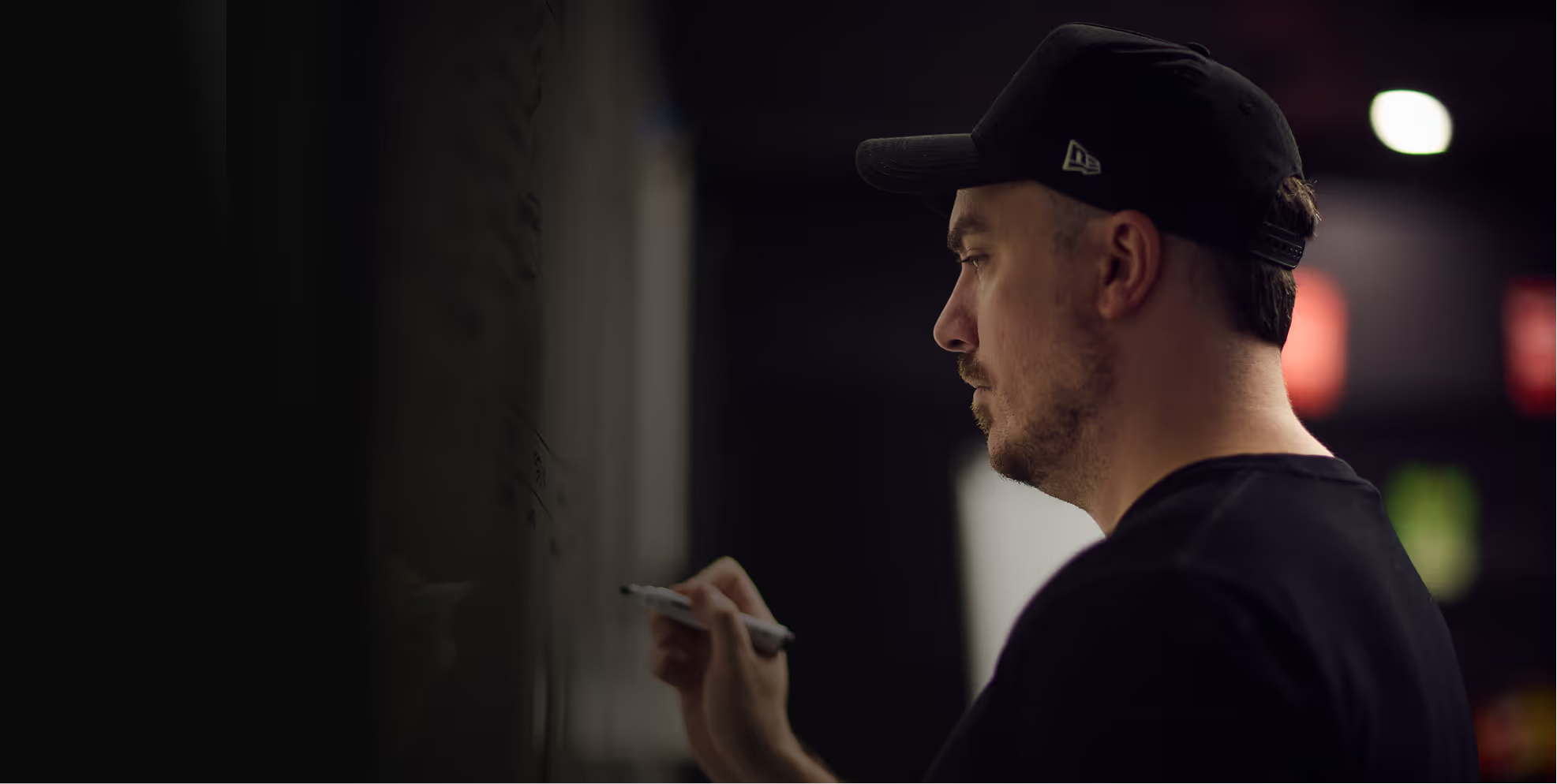
Enquire With Dain’s Team
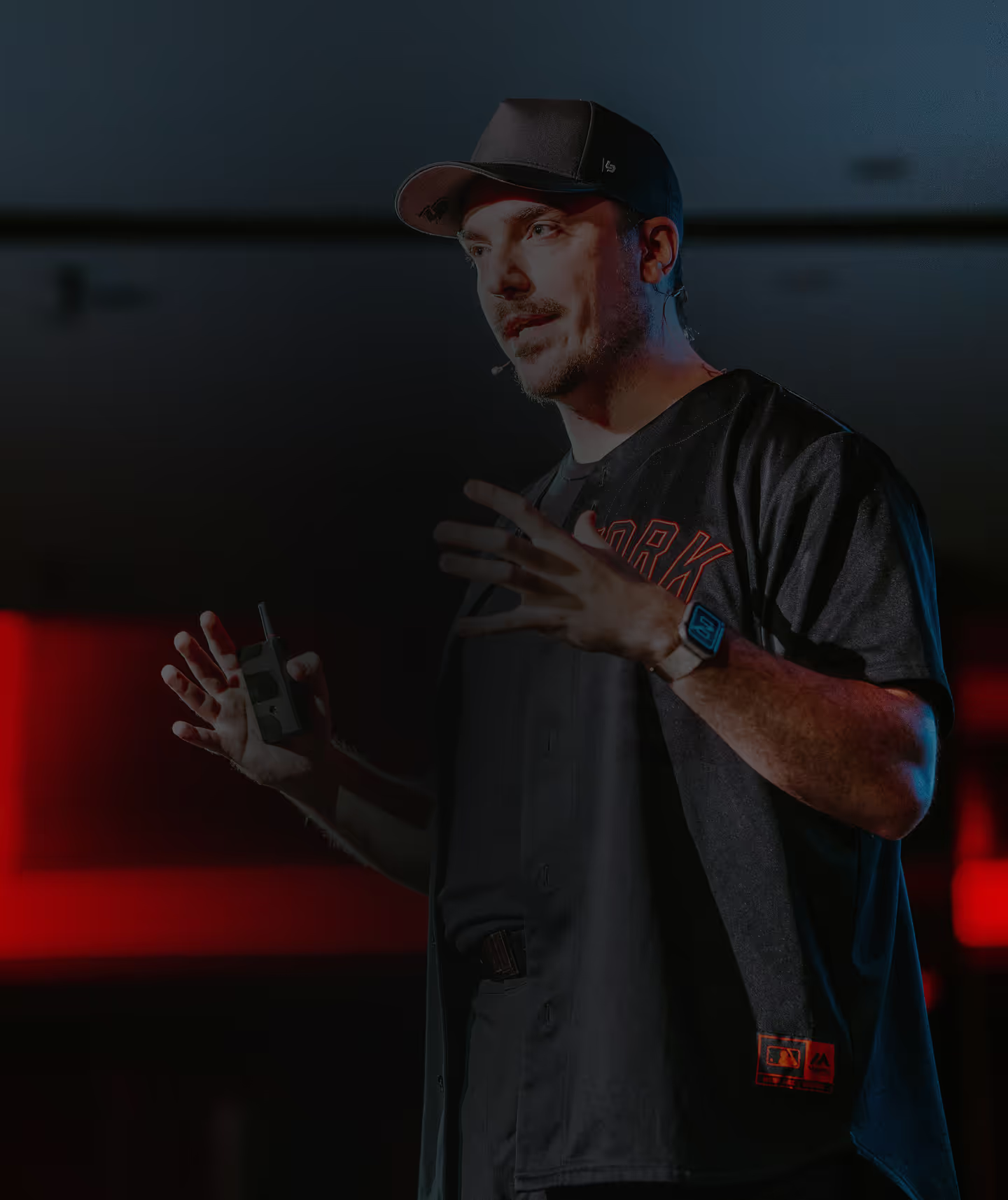
Enquire For Speaking

Let's Get You Branded
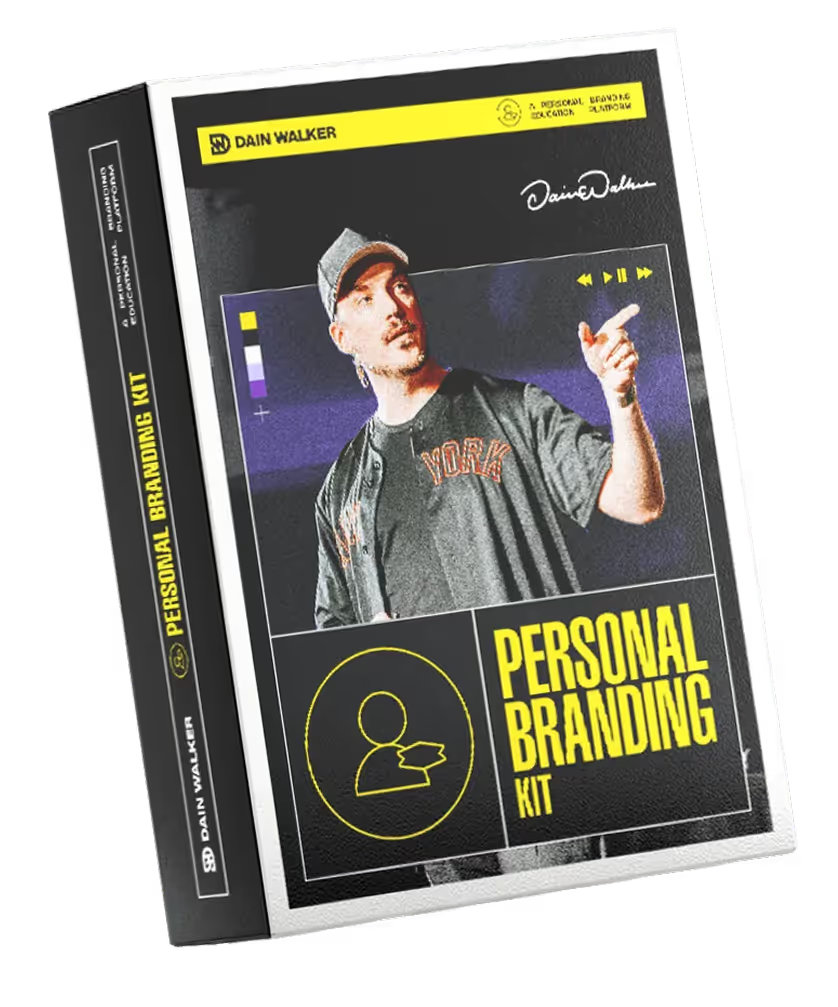
Apply to be a guest
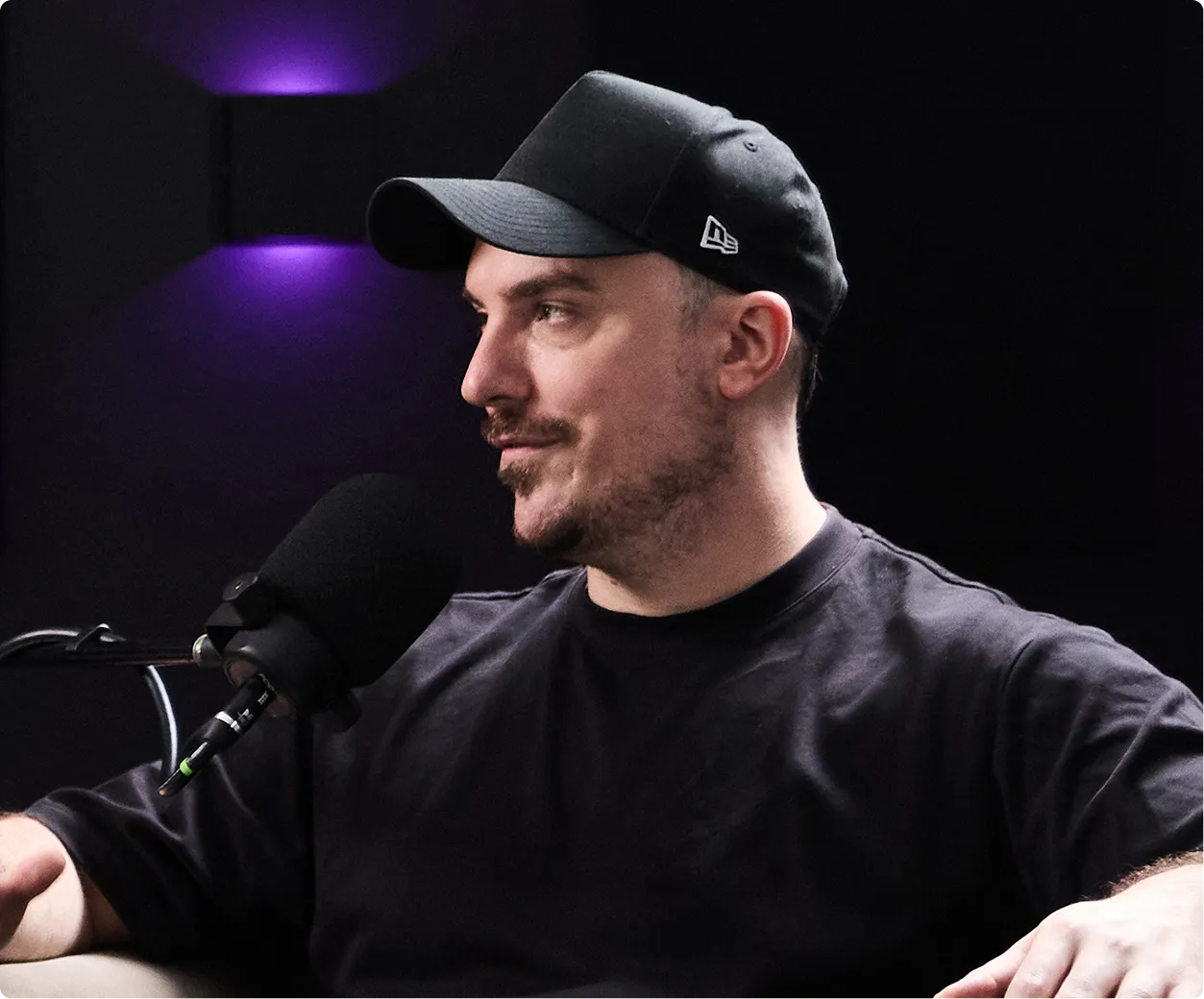
Dive into insights from industry leaders and experts.
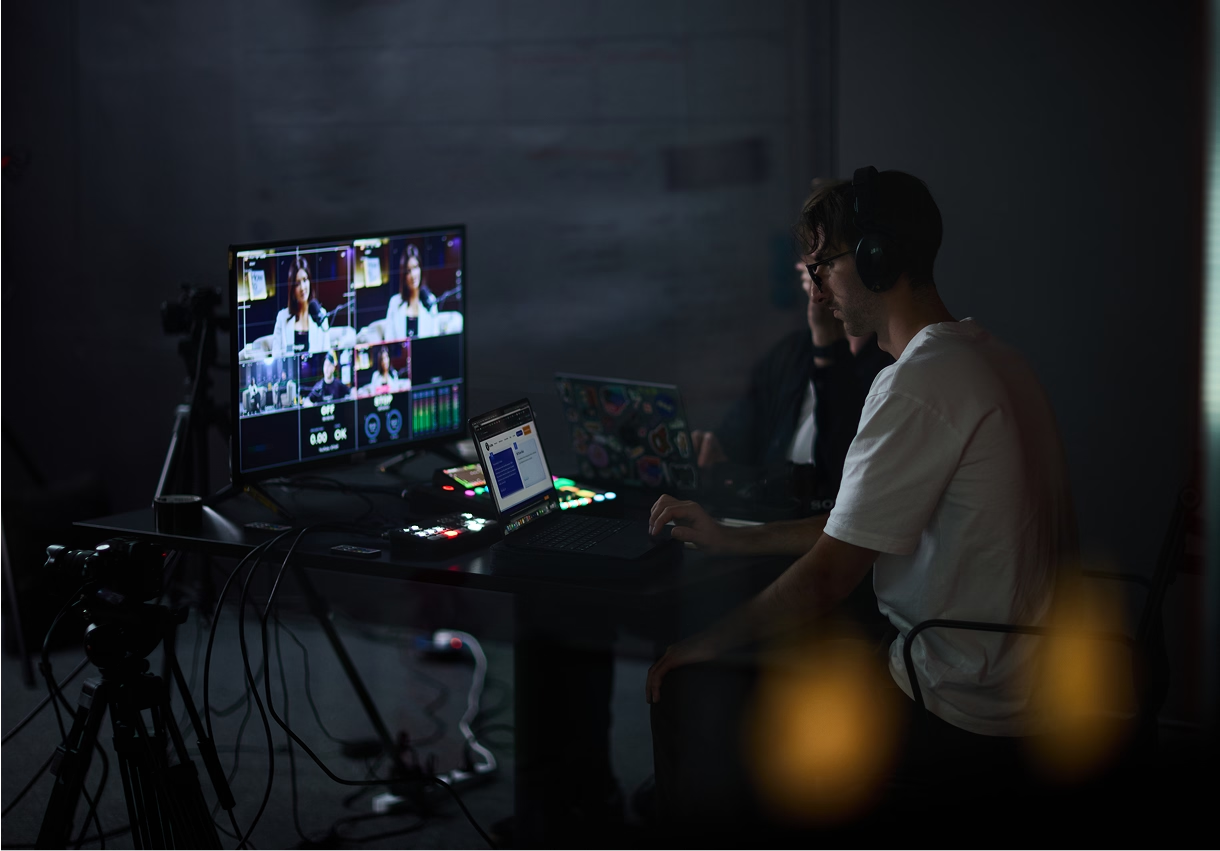
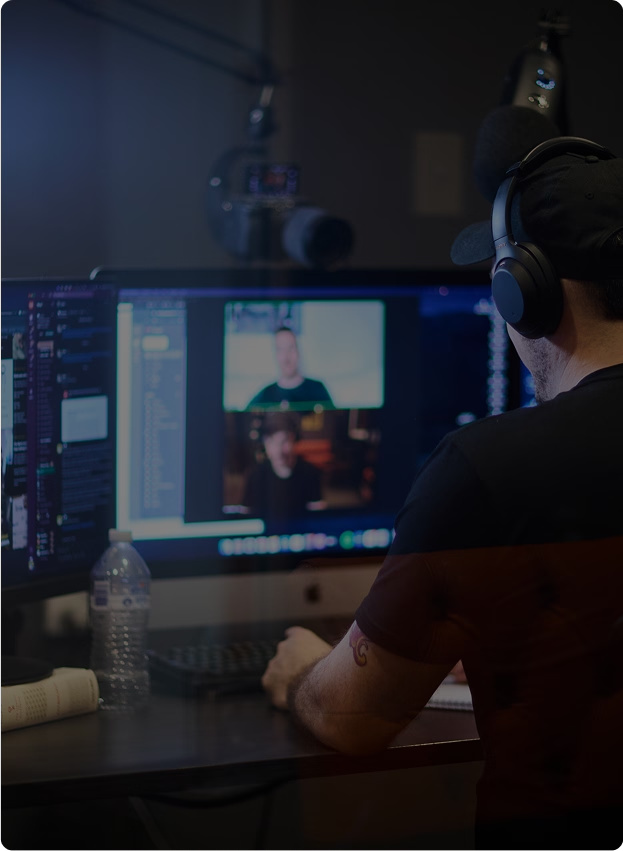
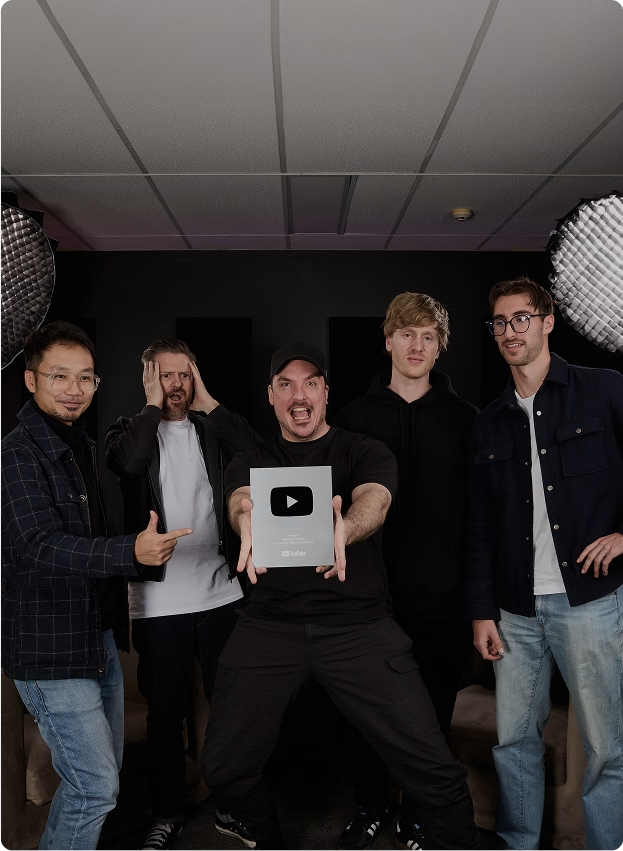
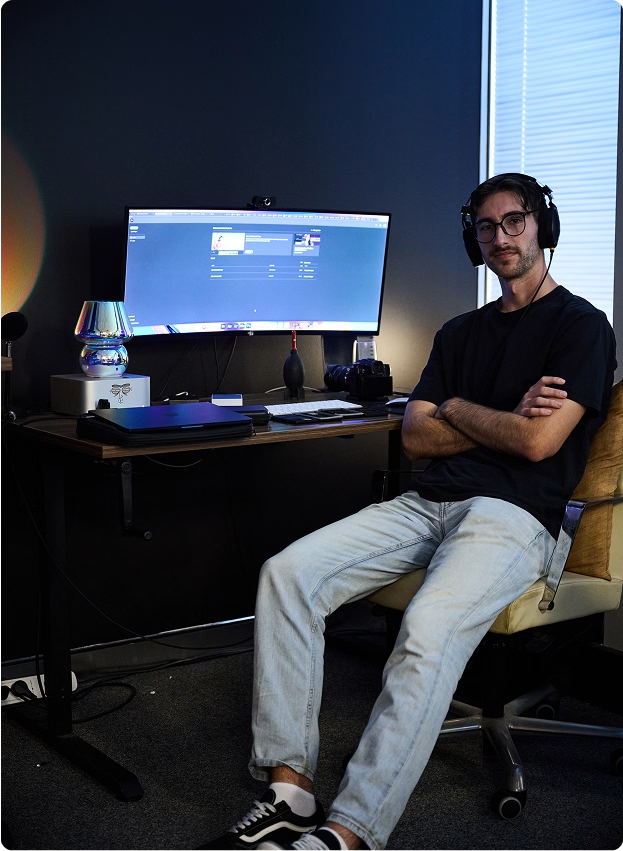
Stream now
Dive into expert advice and industry trends.
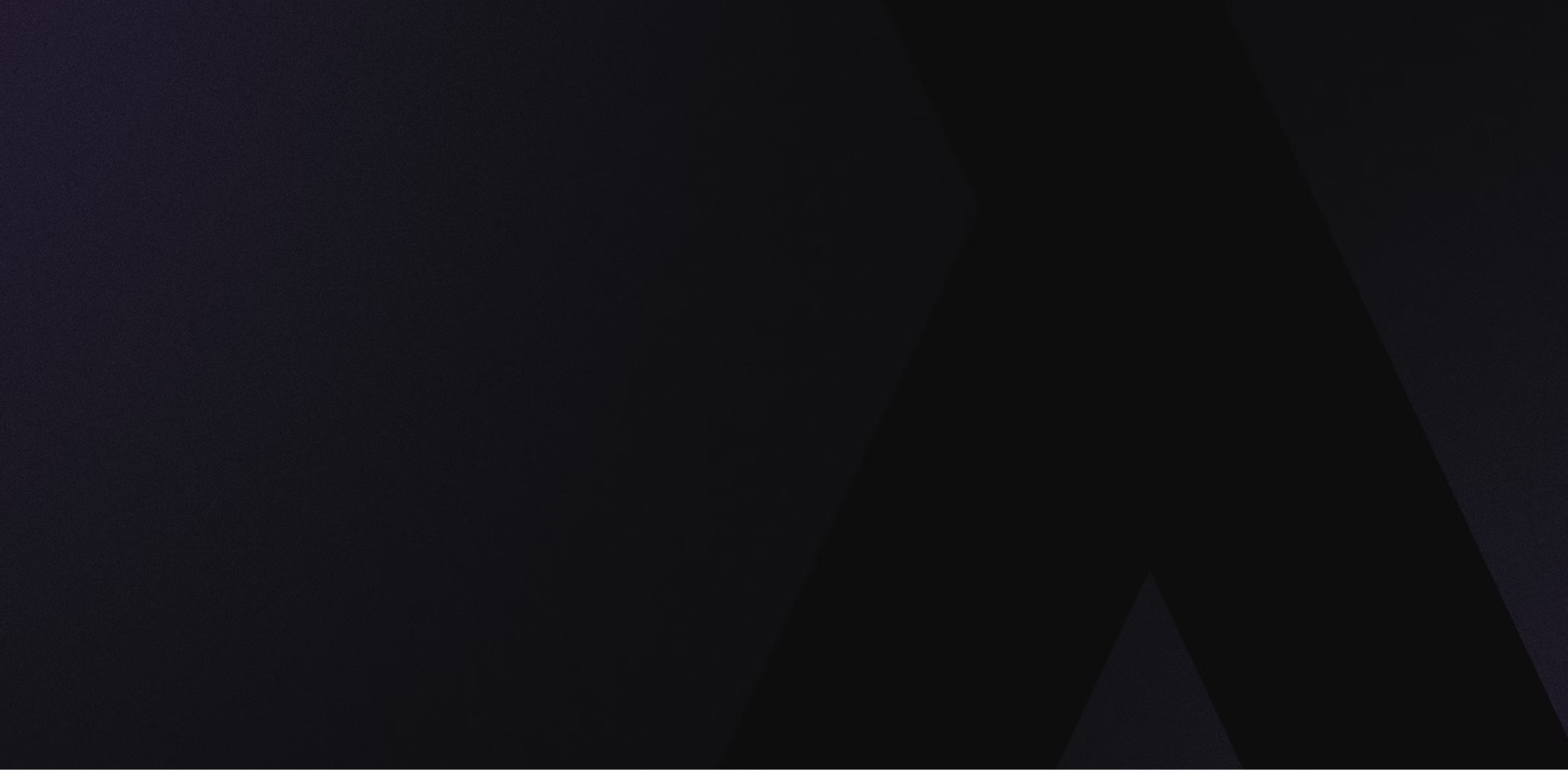

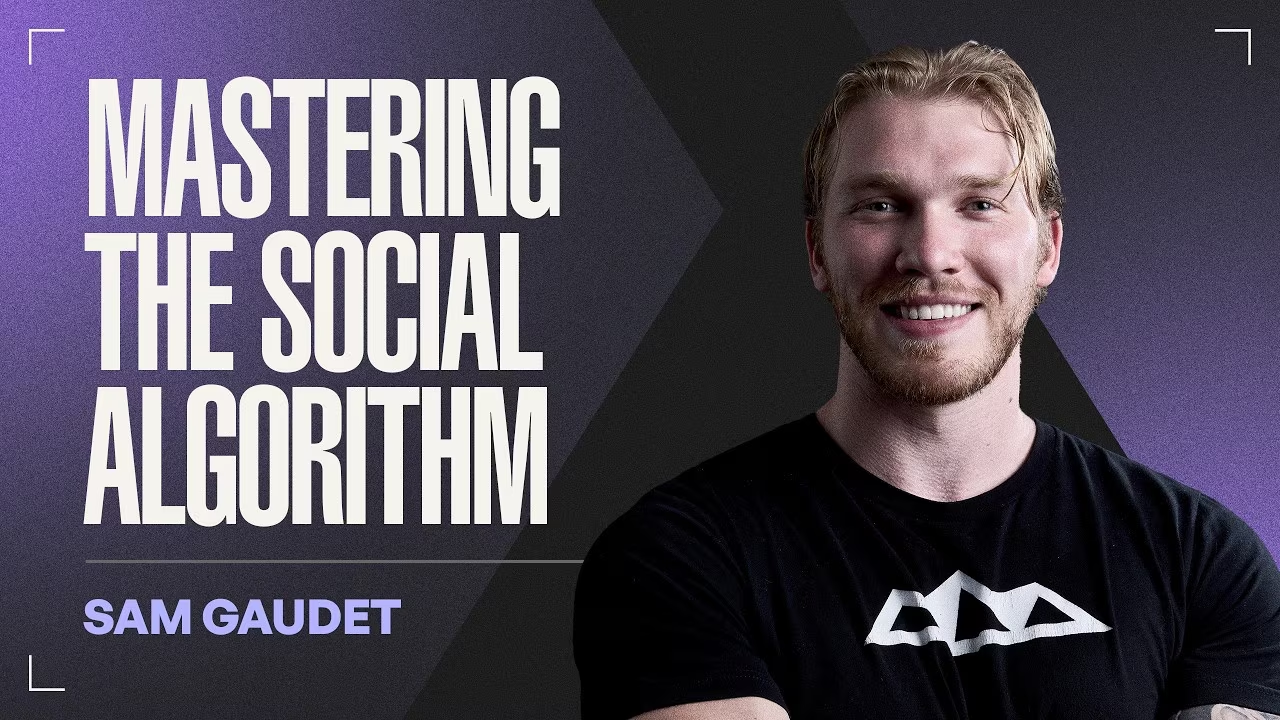
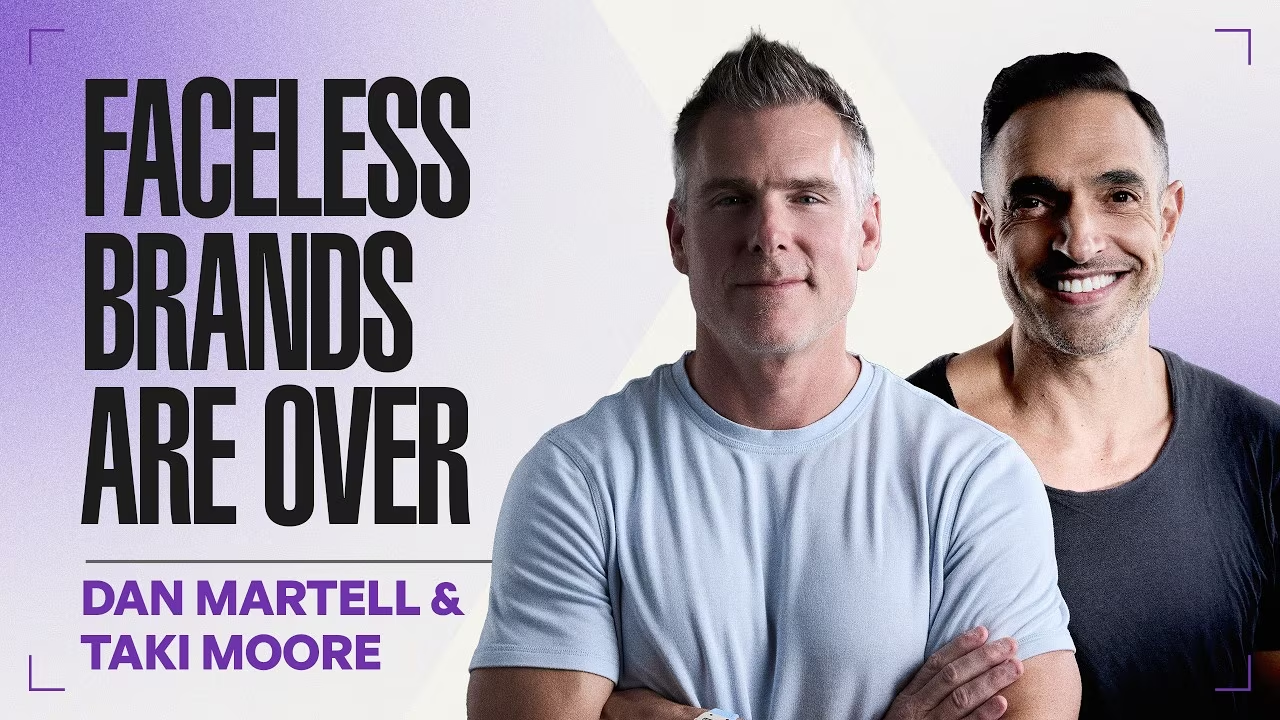
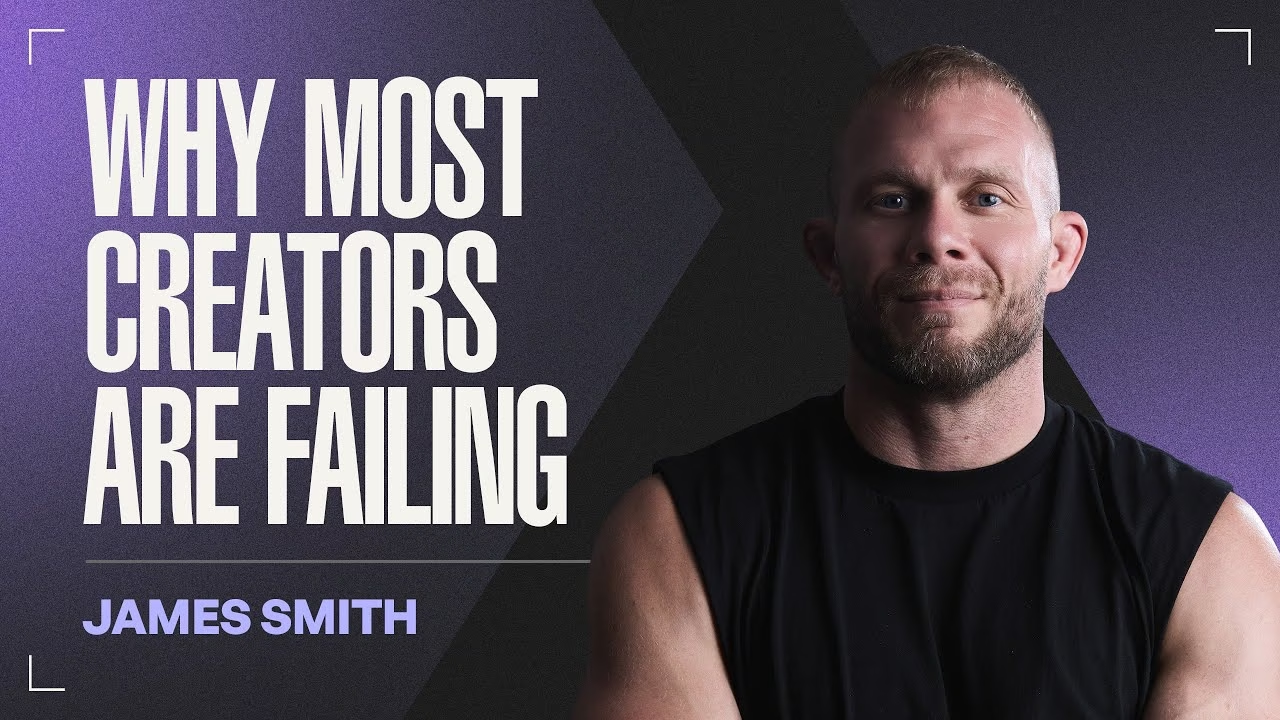
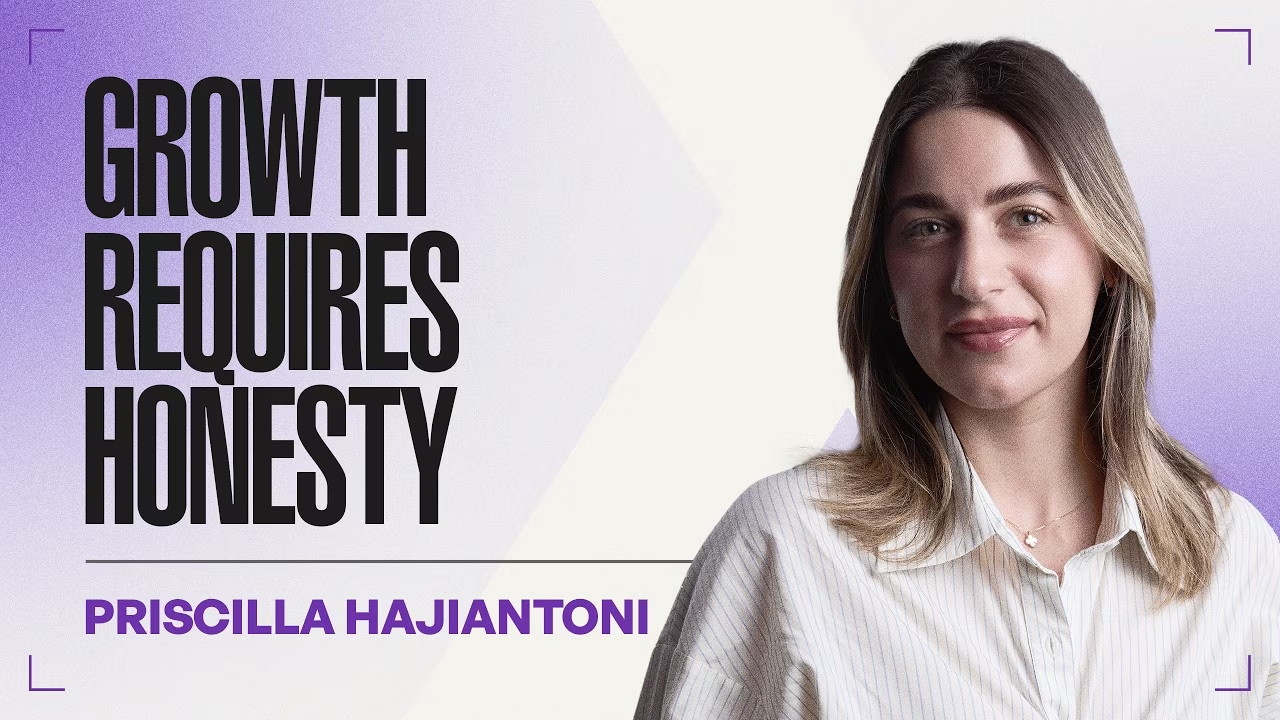
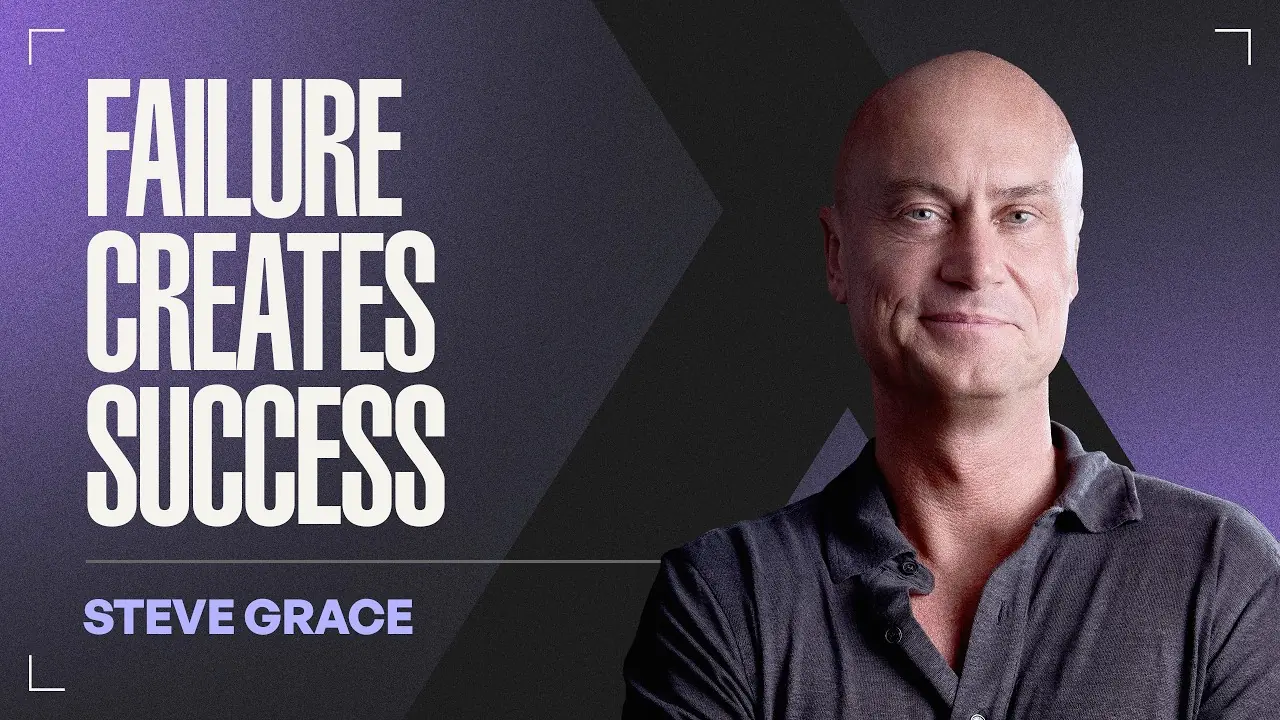
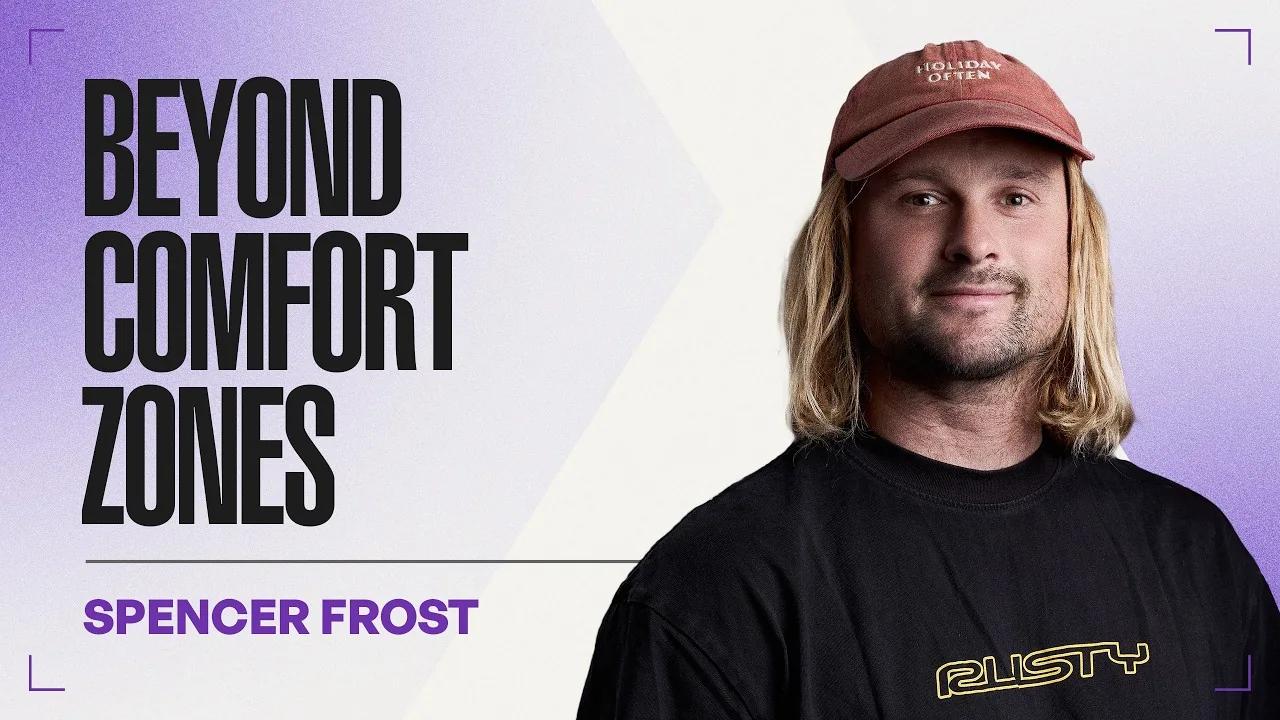


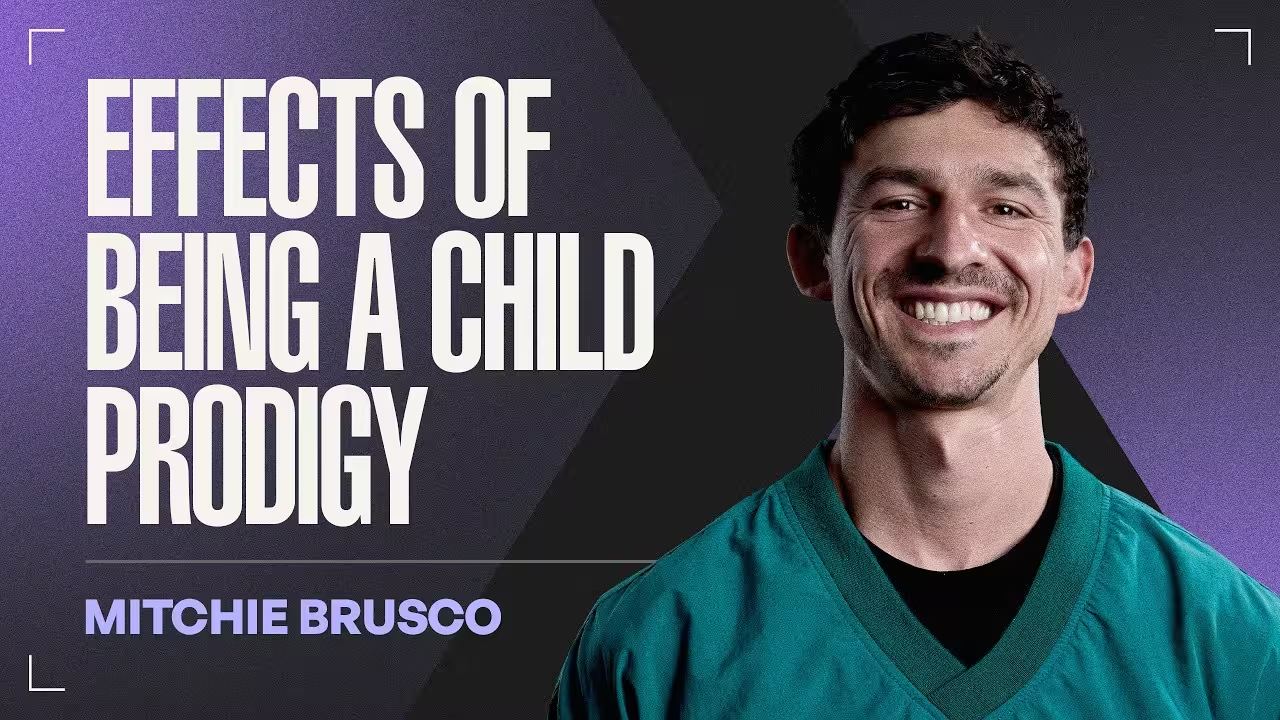
.avif)
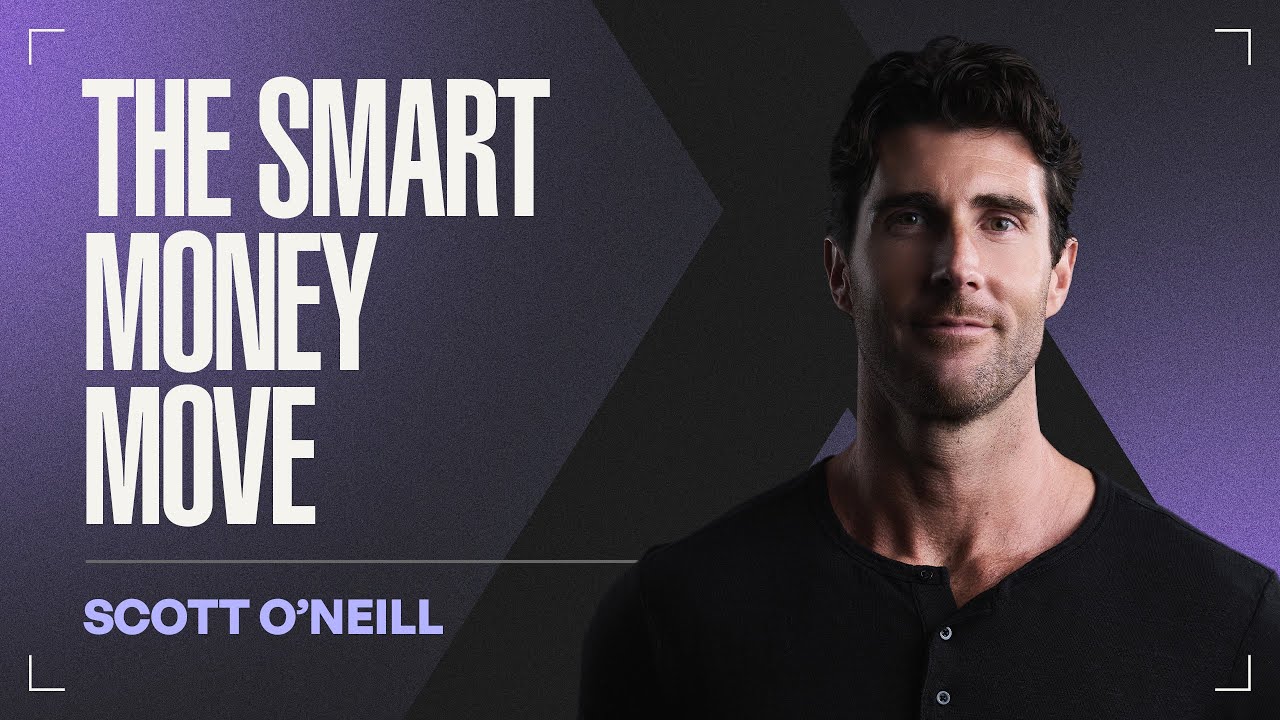
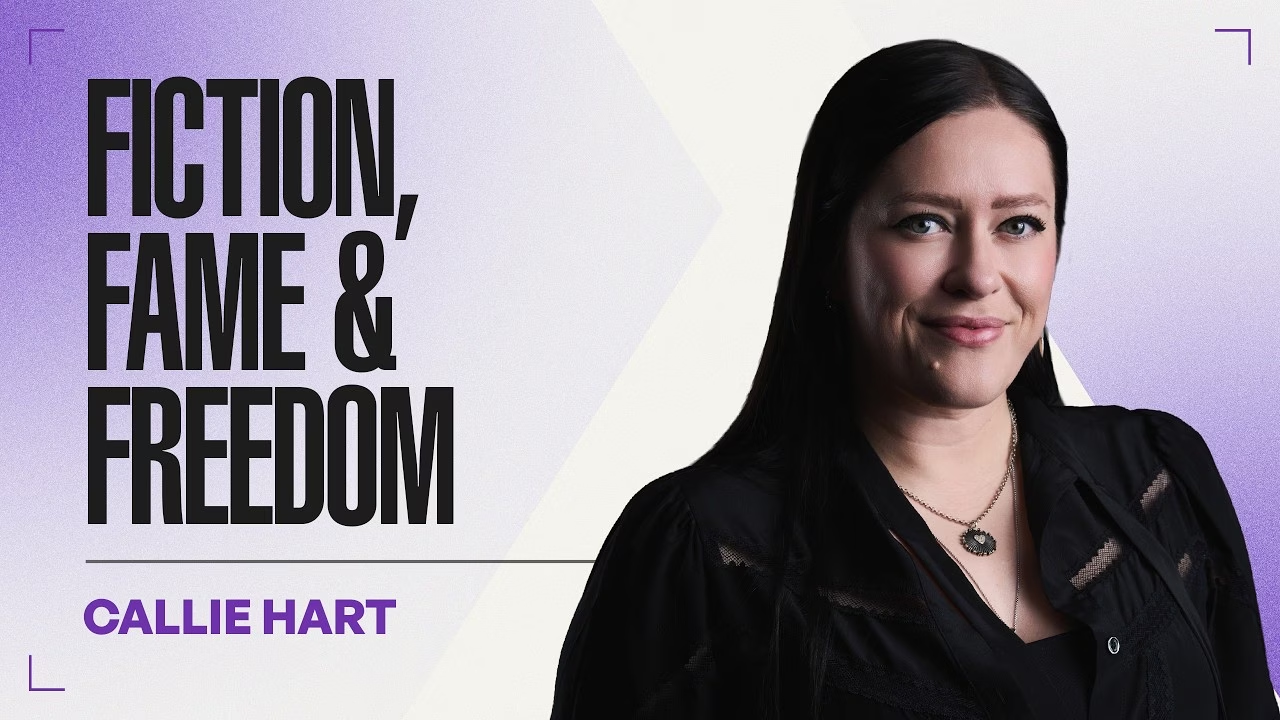

.avif)
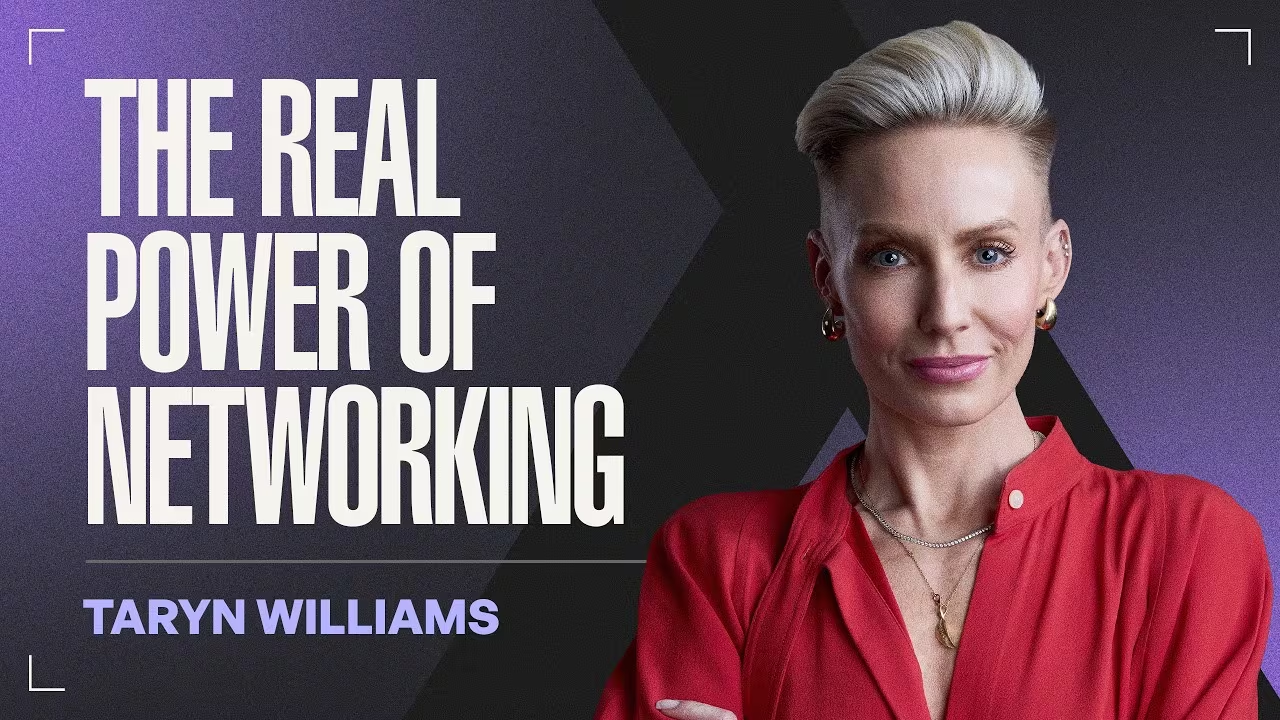

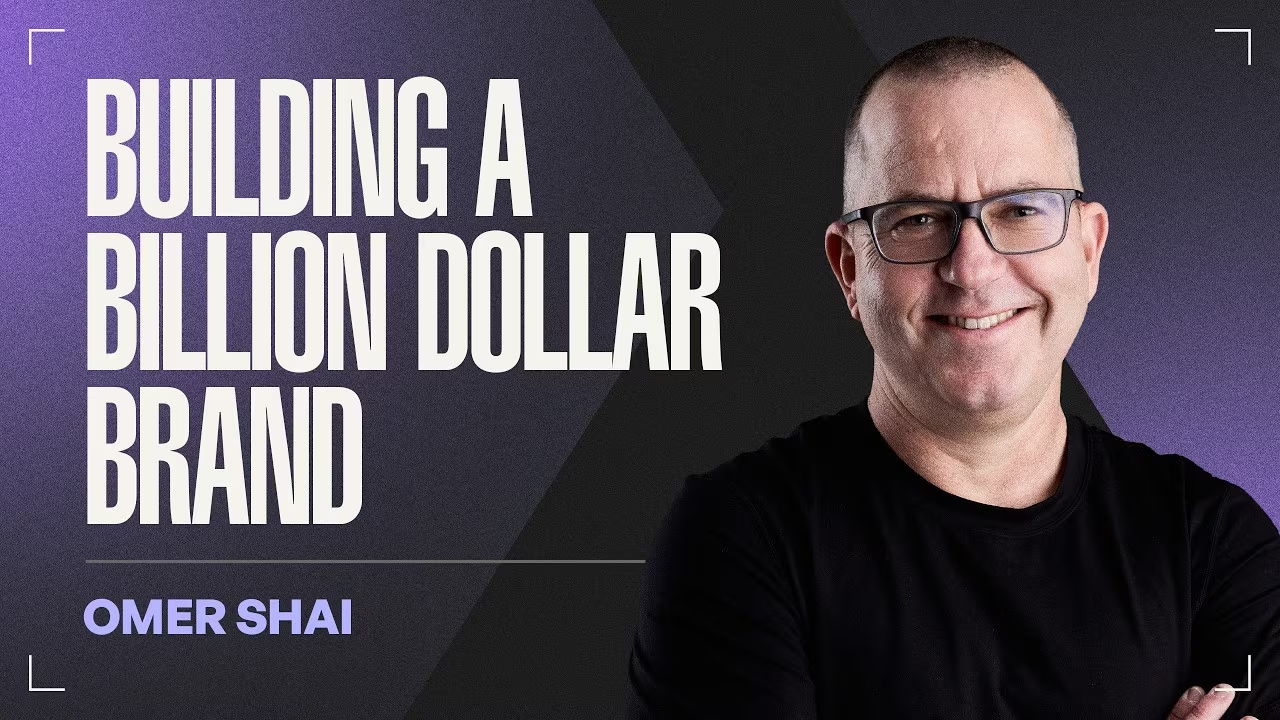
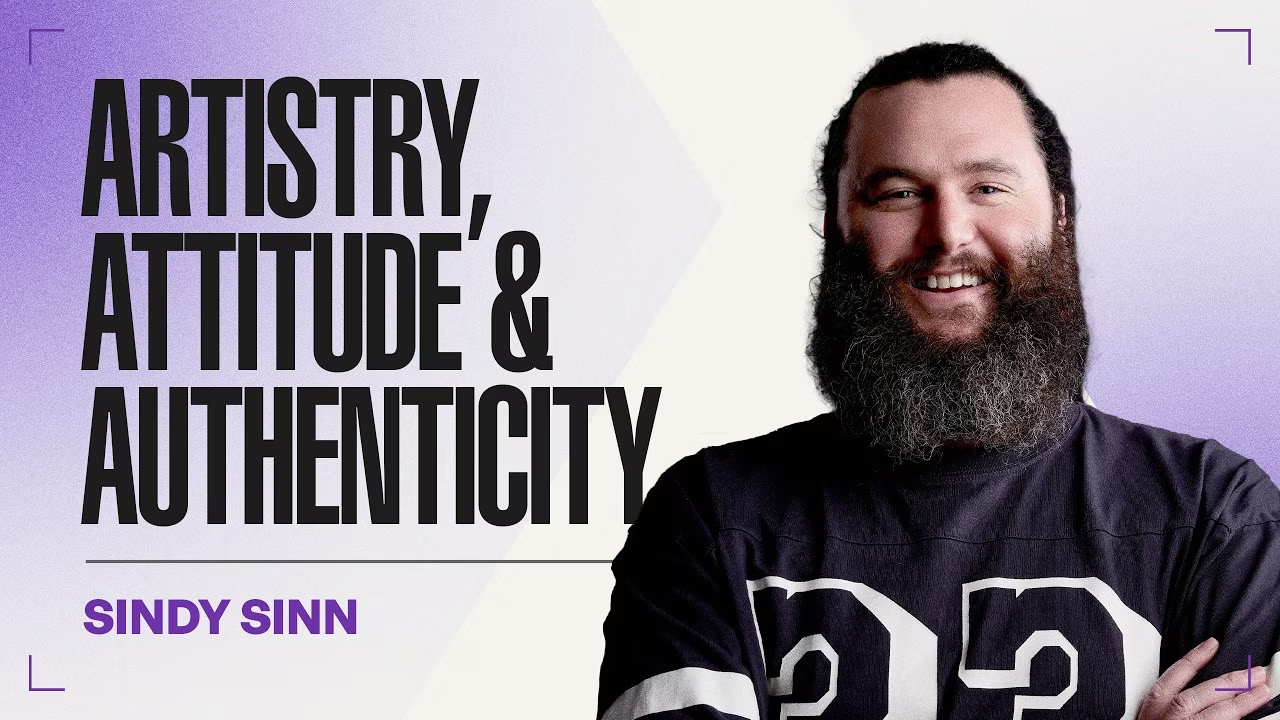
%20(1).avif)
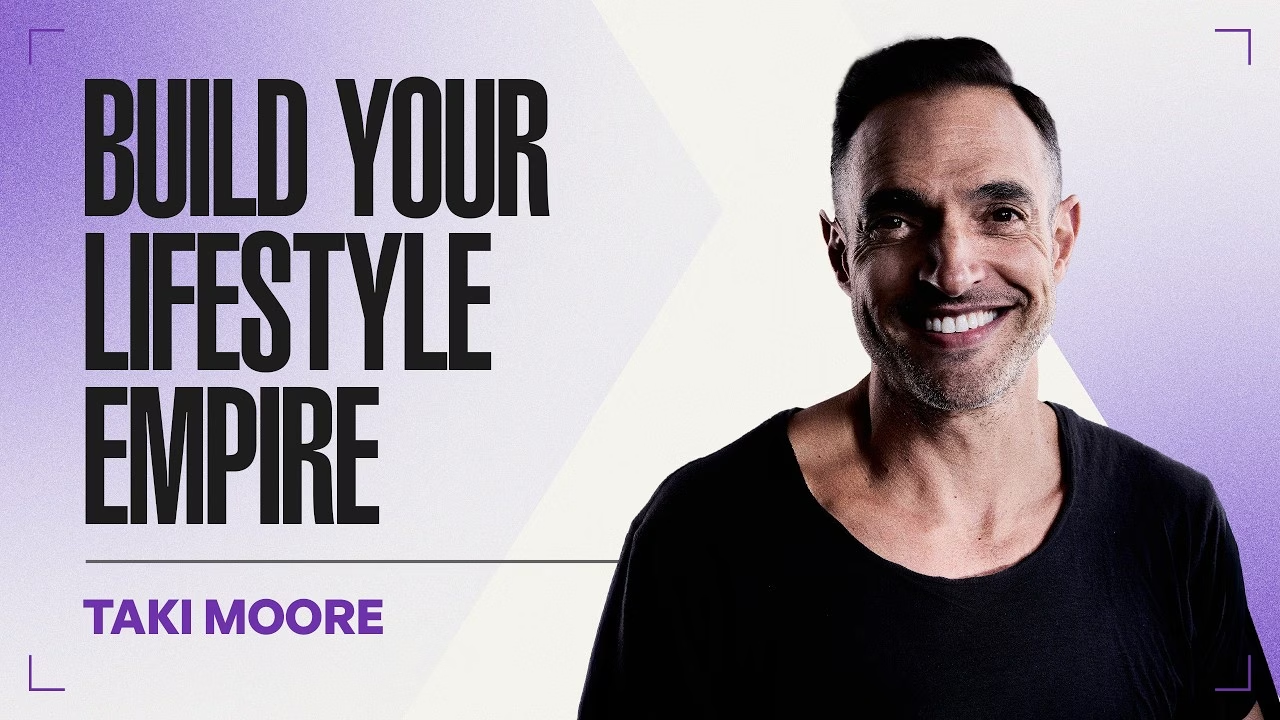
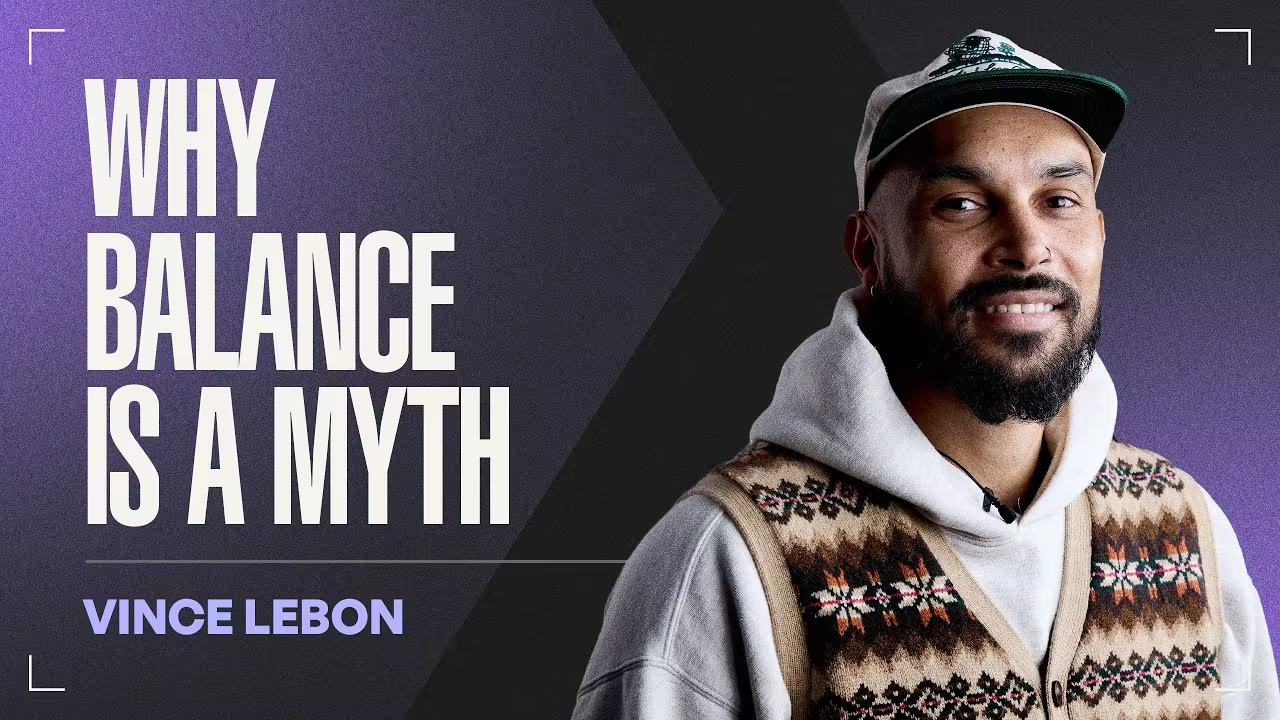

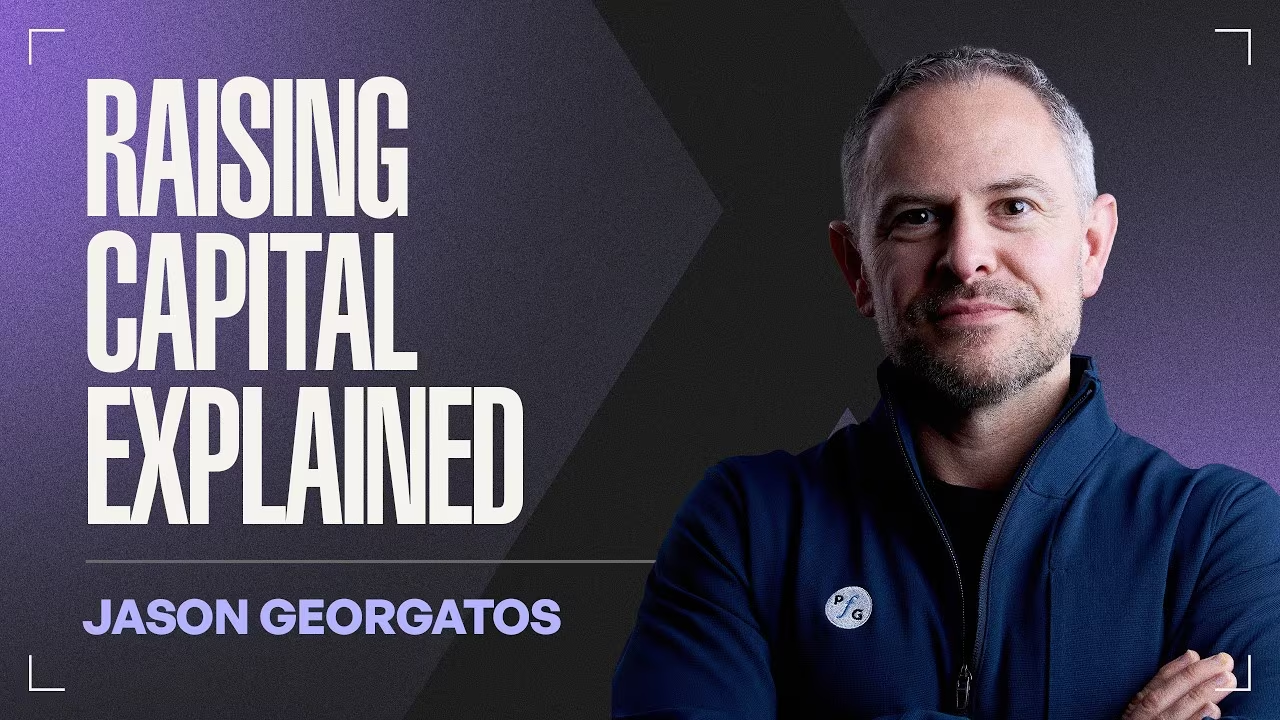
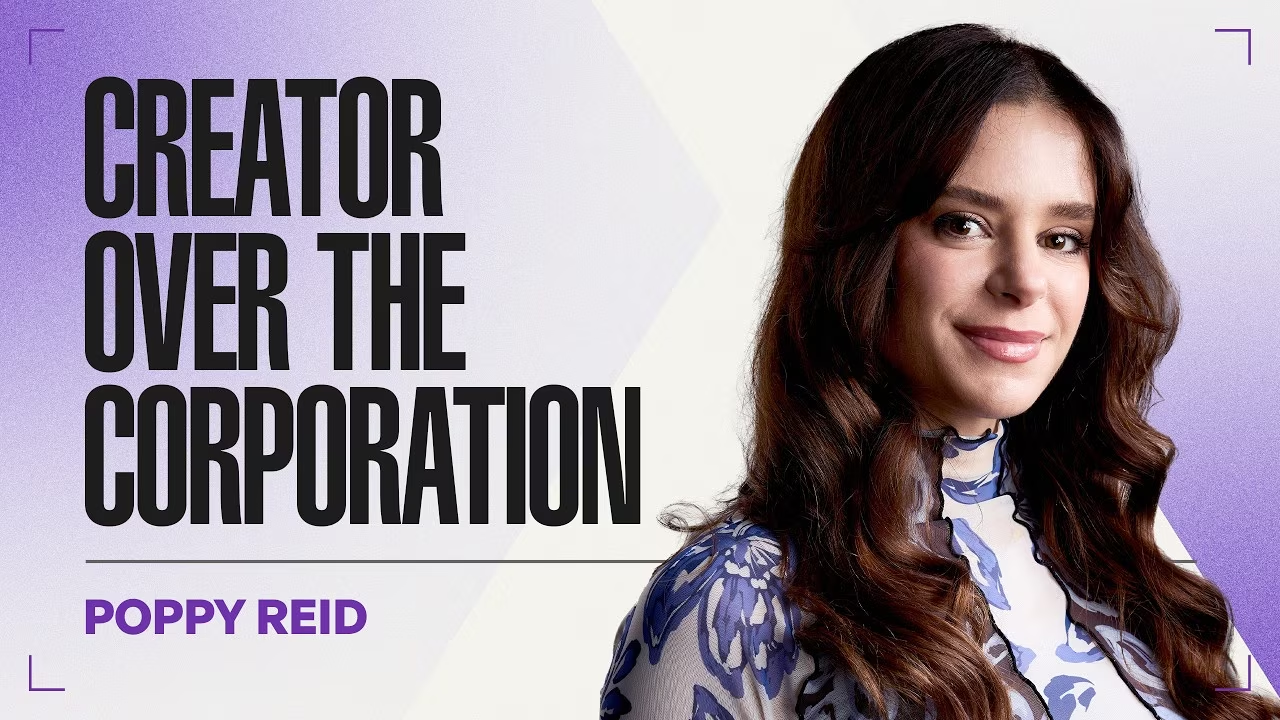
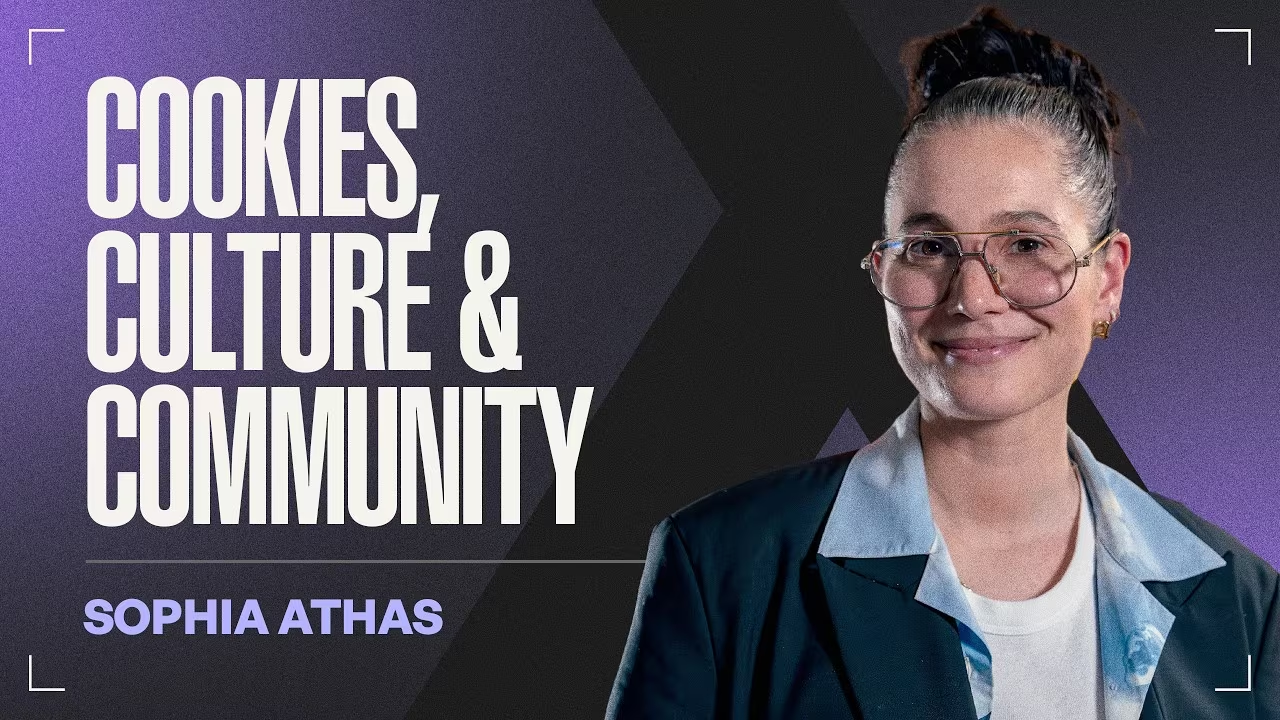

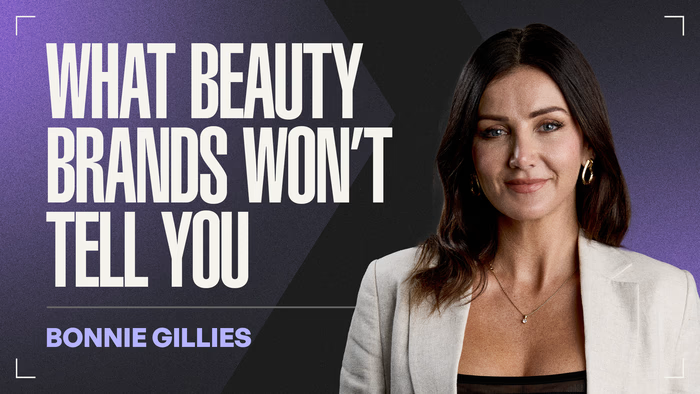


.avif)

